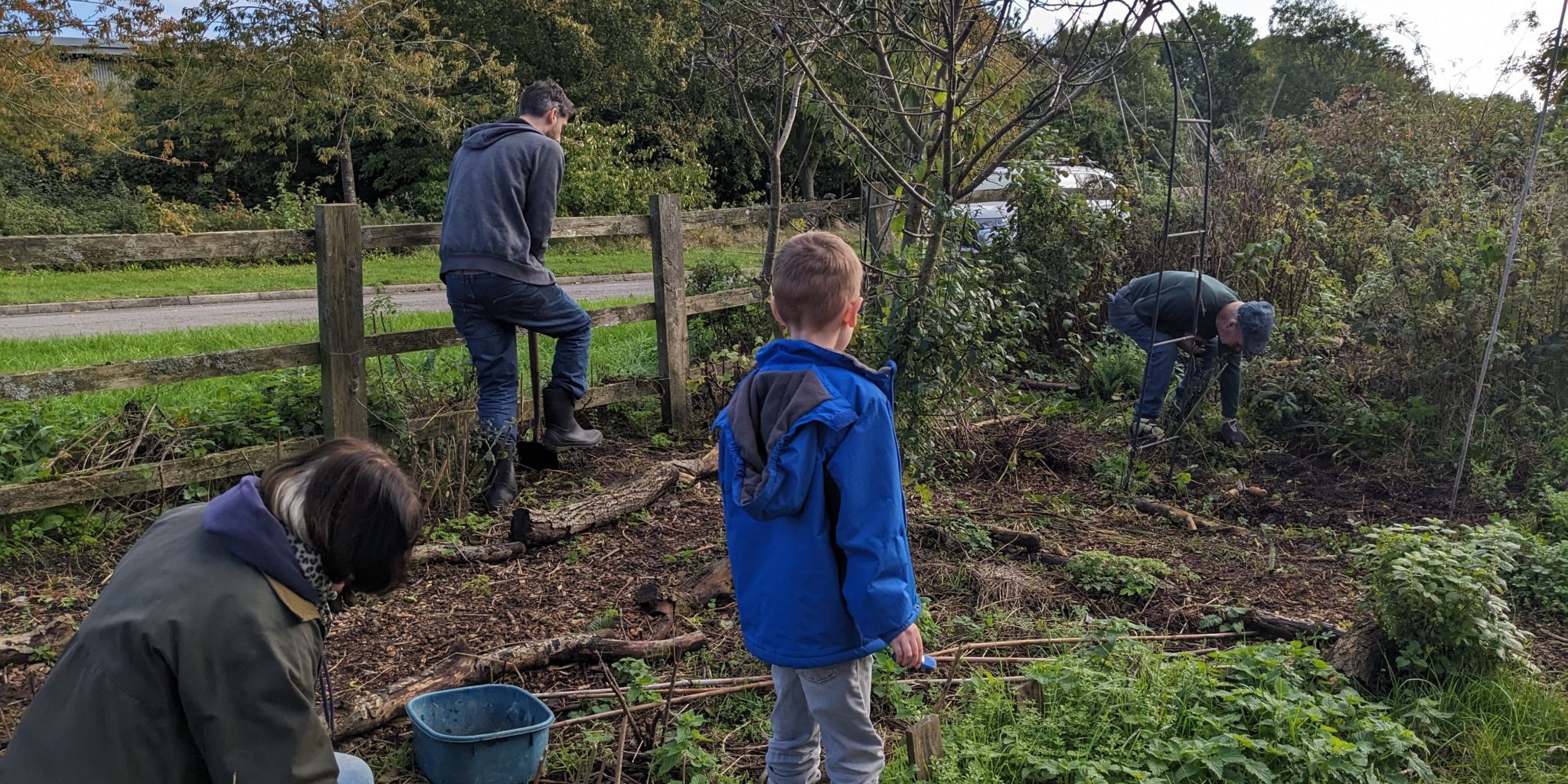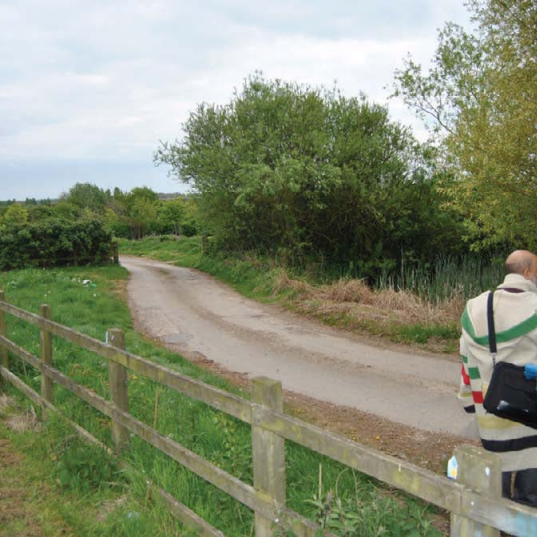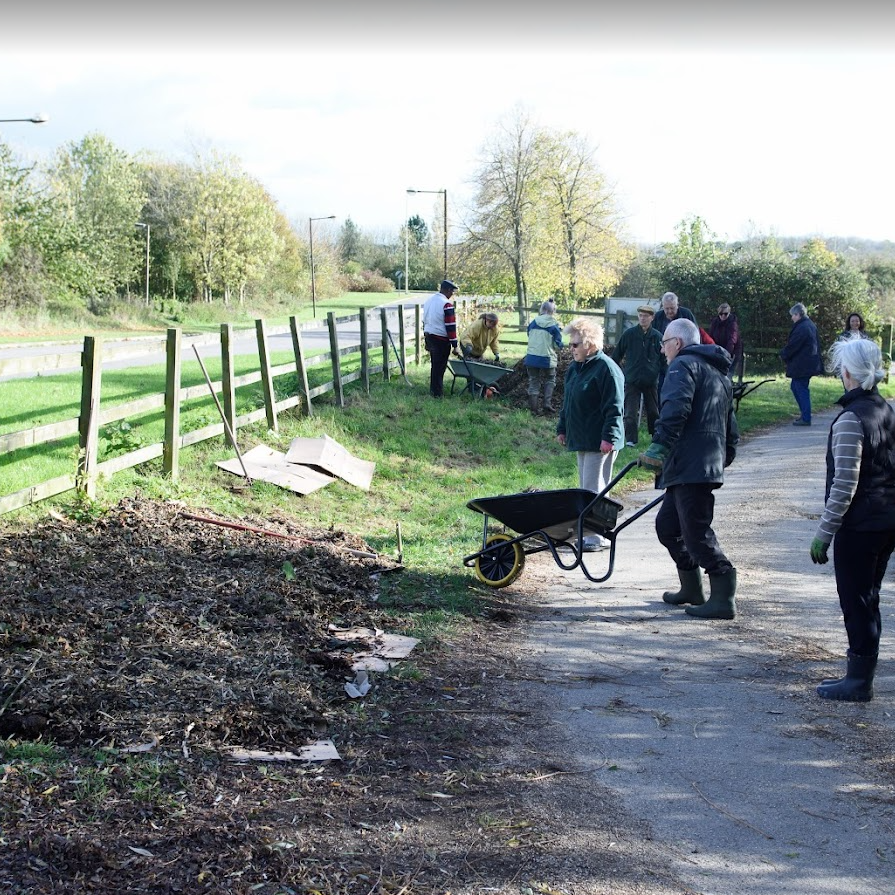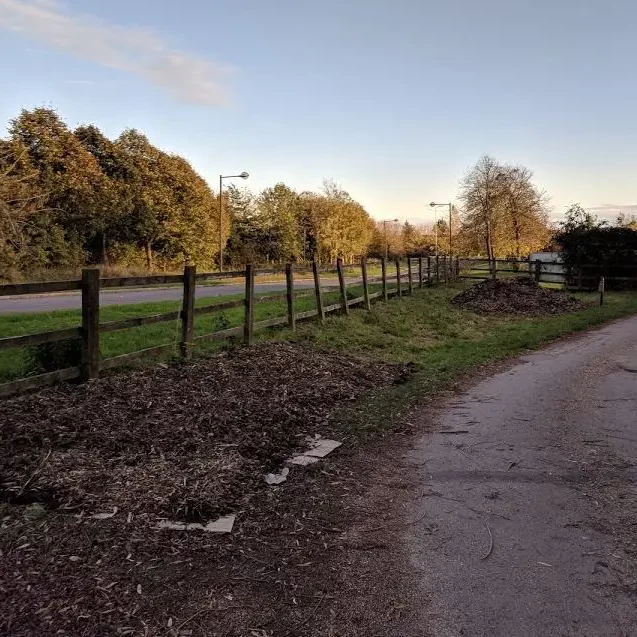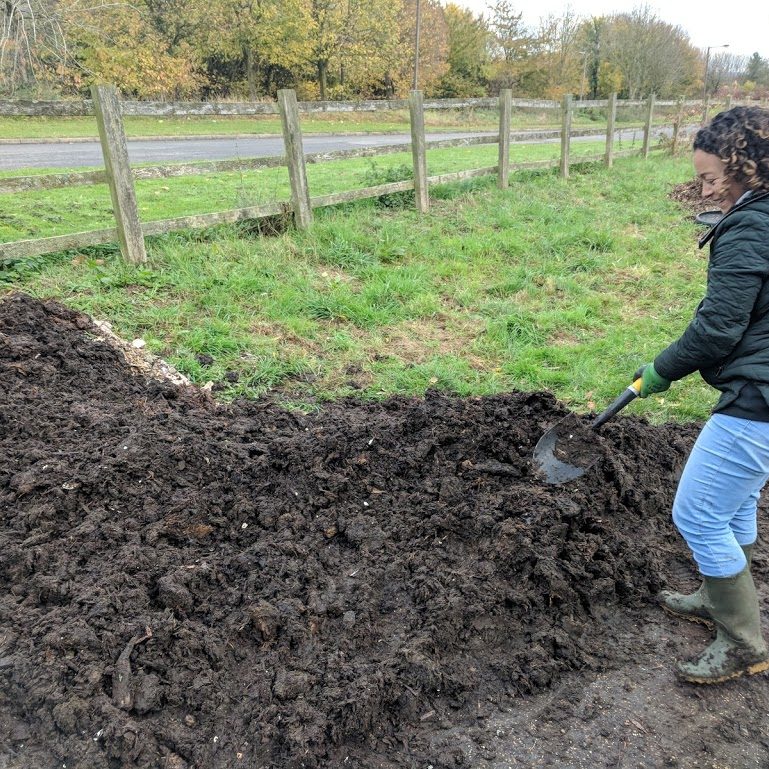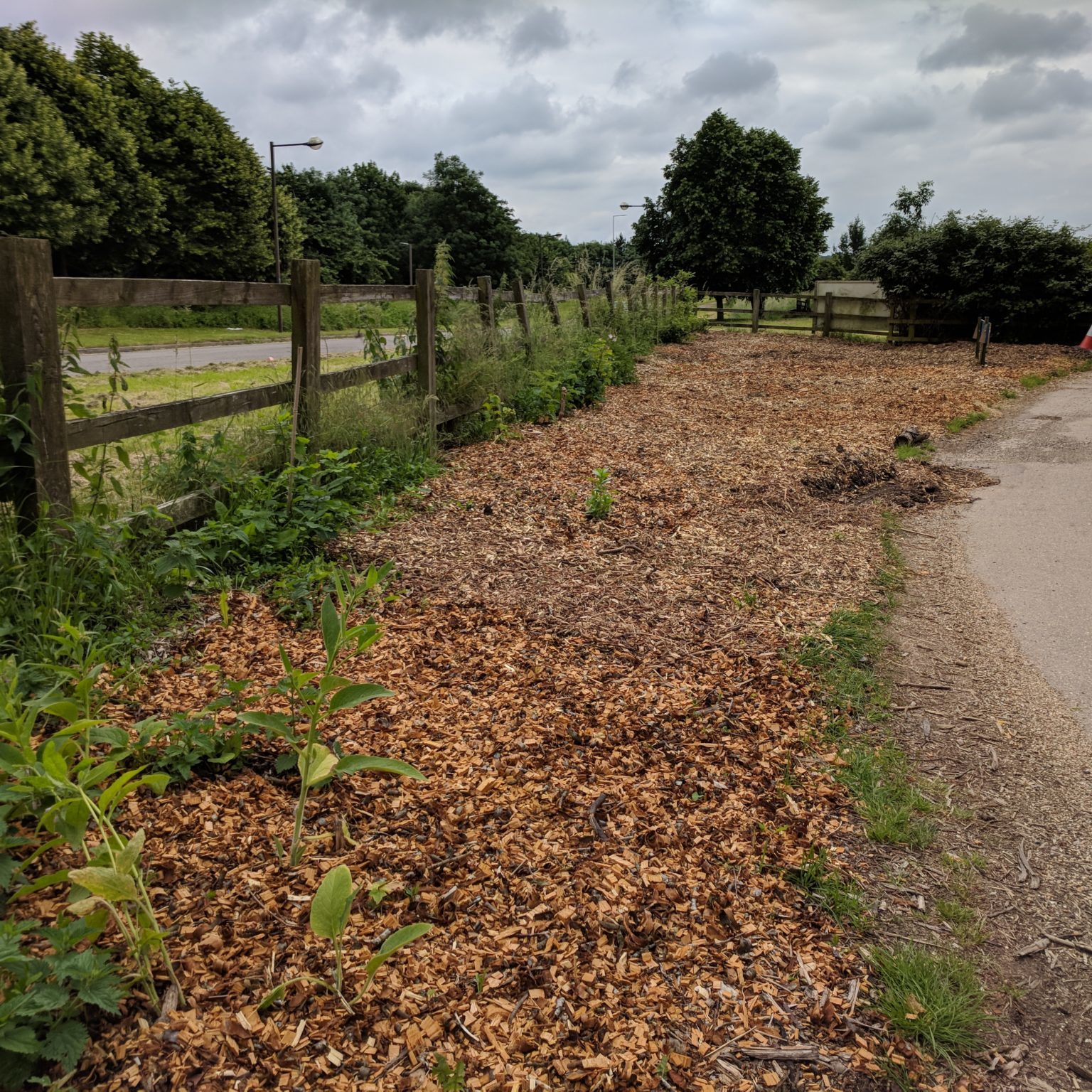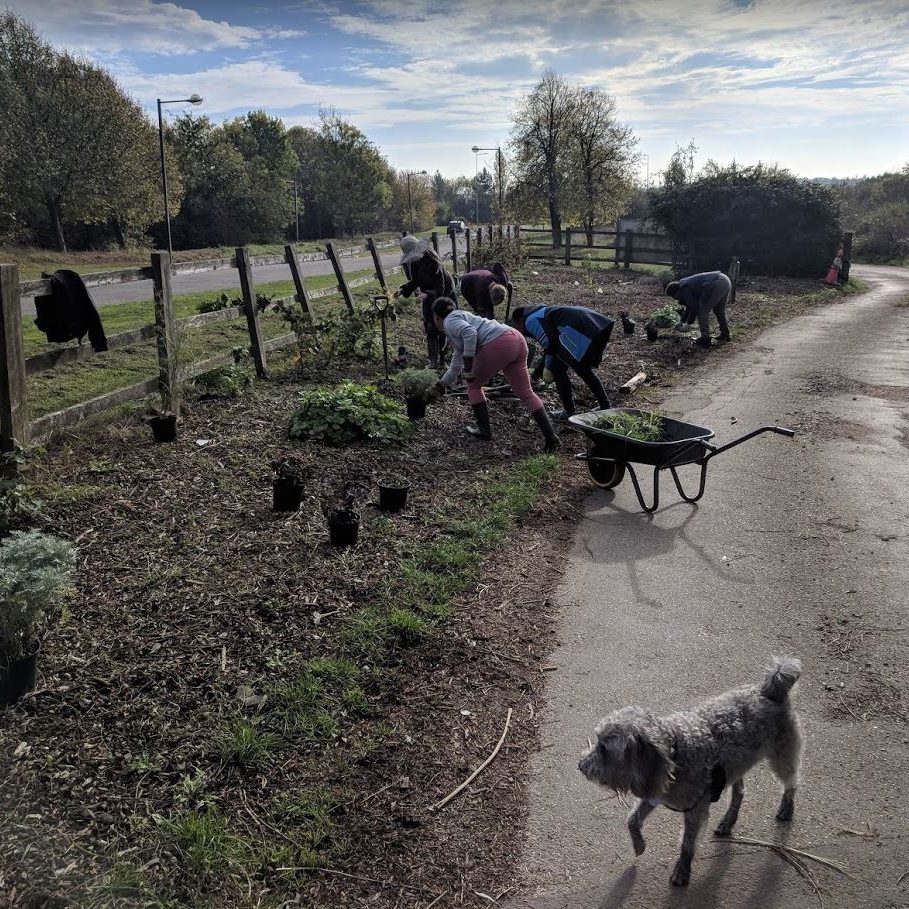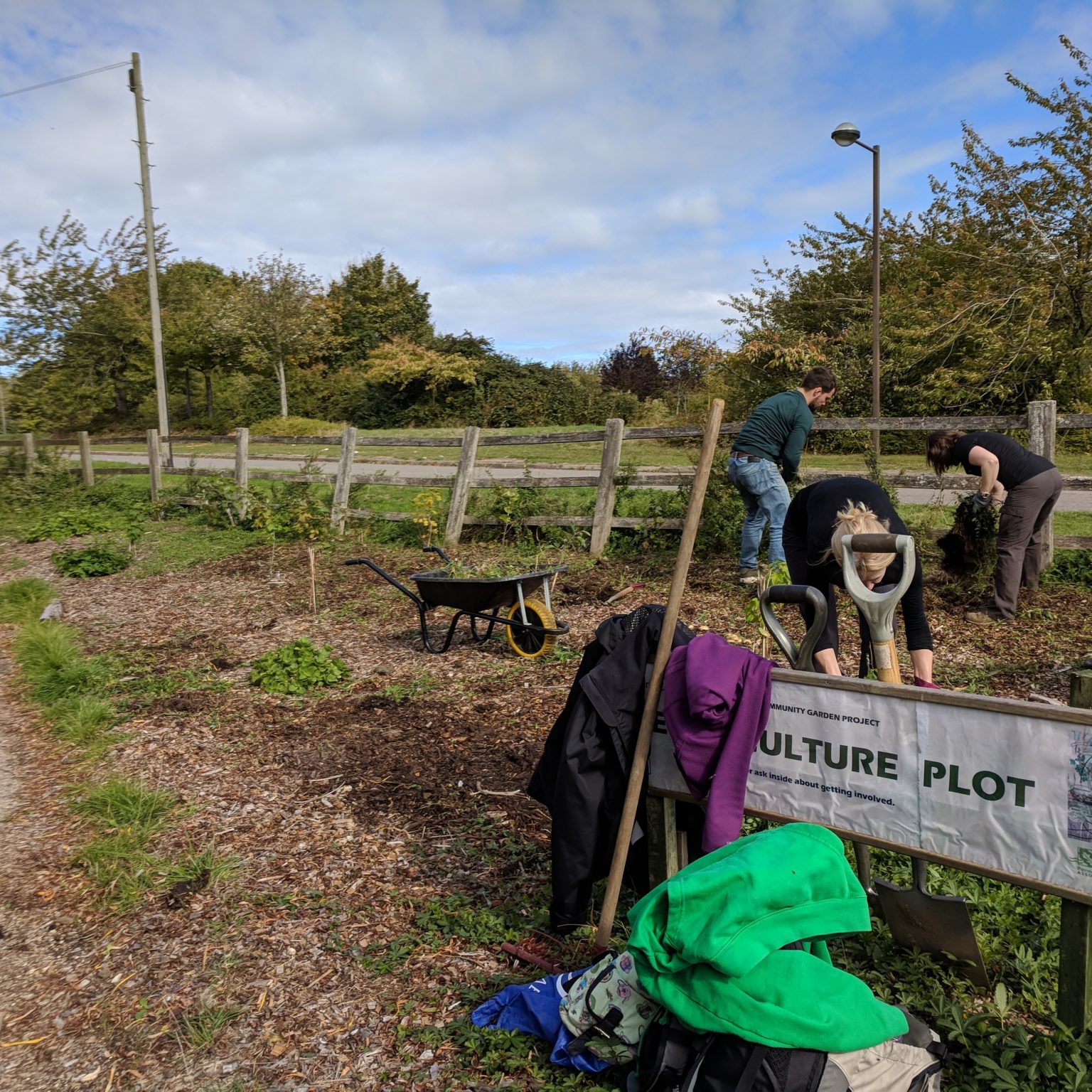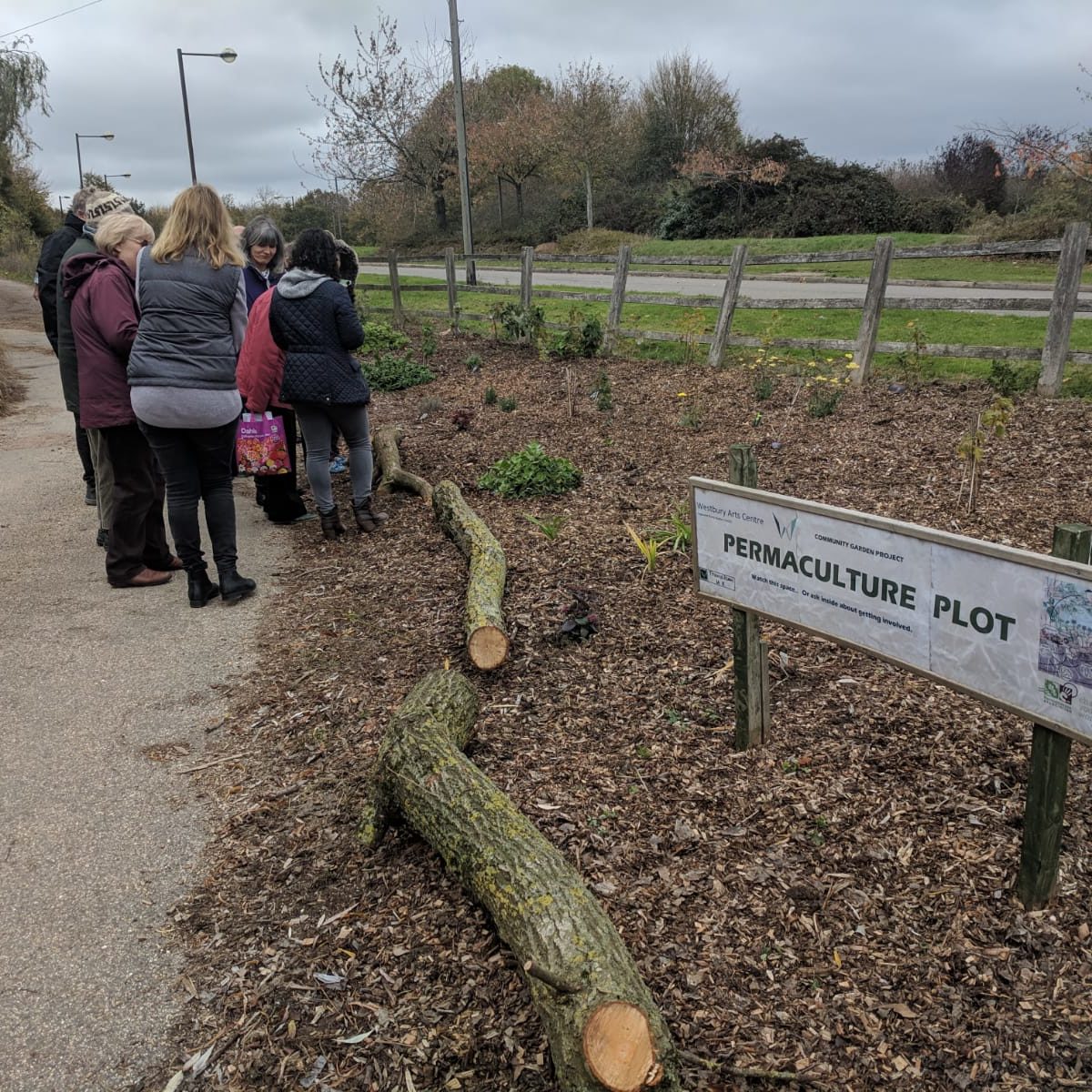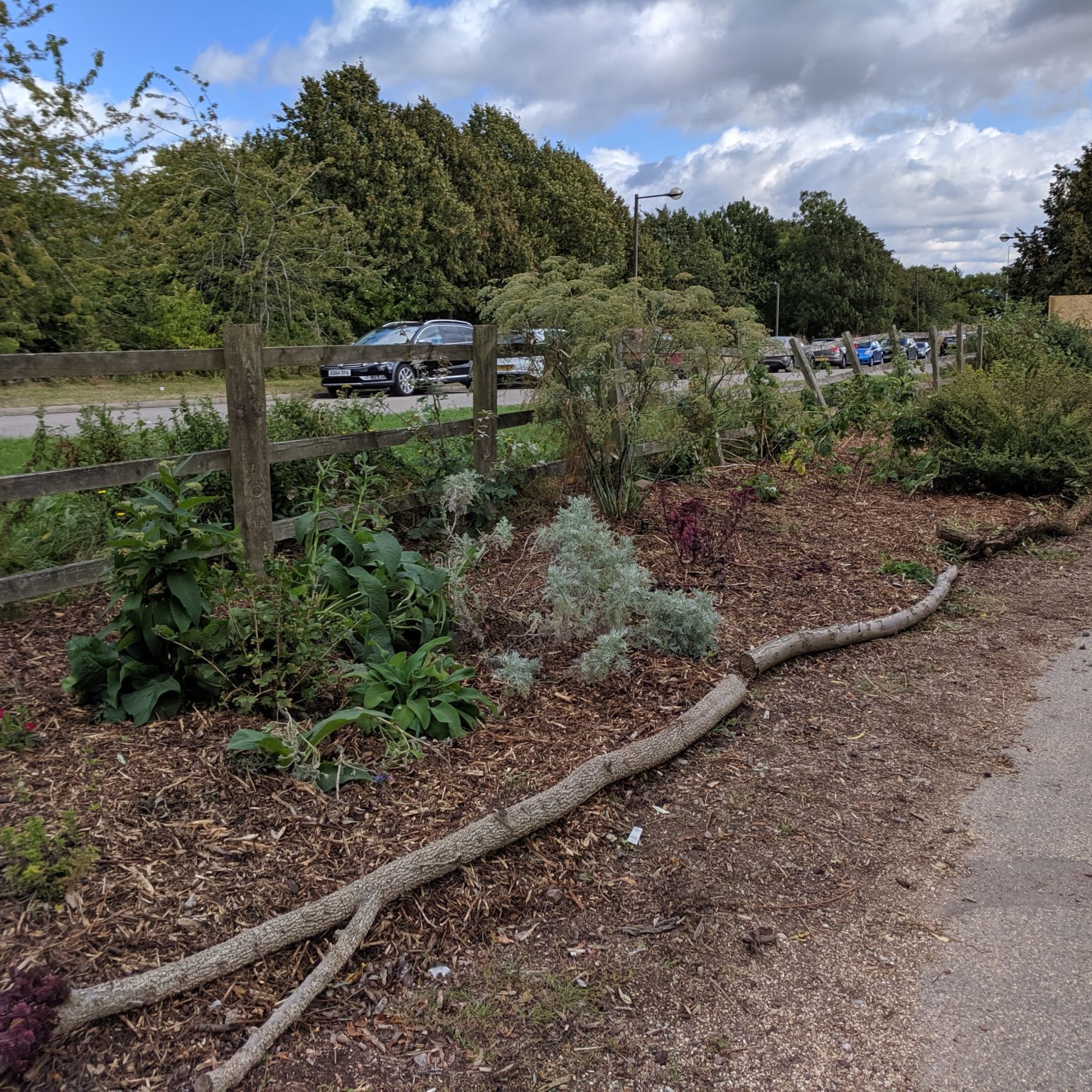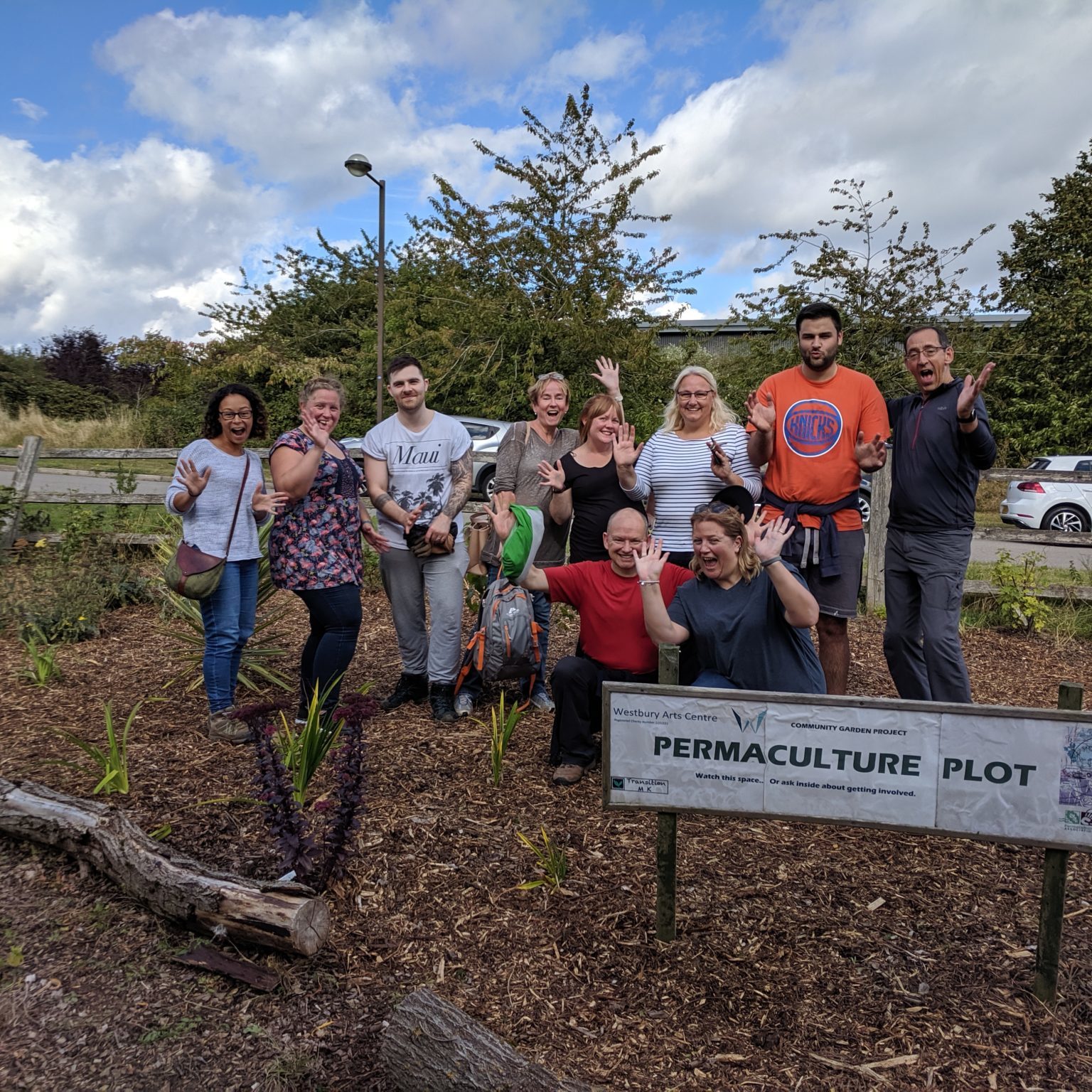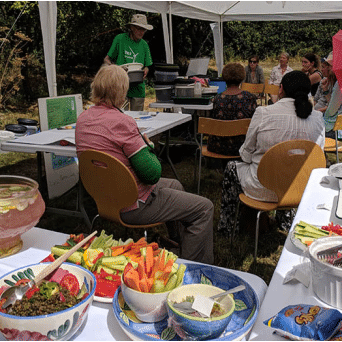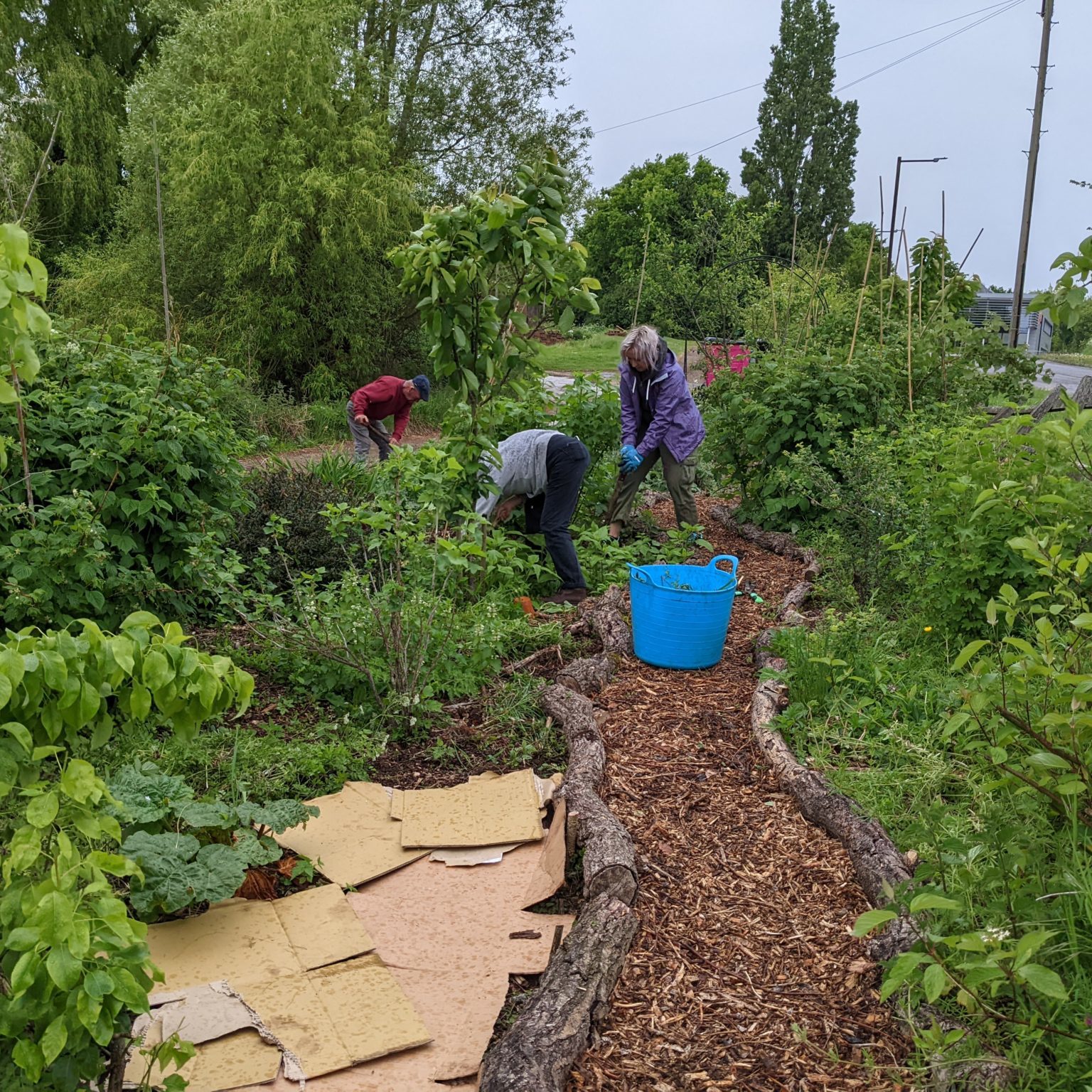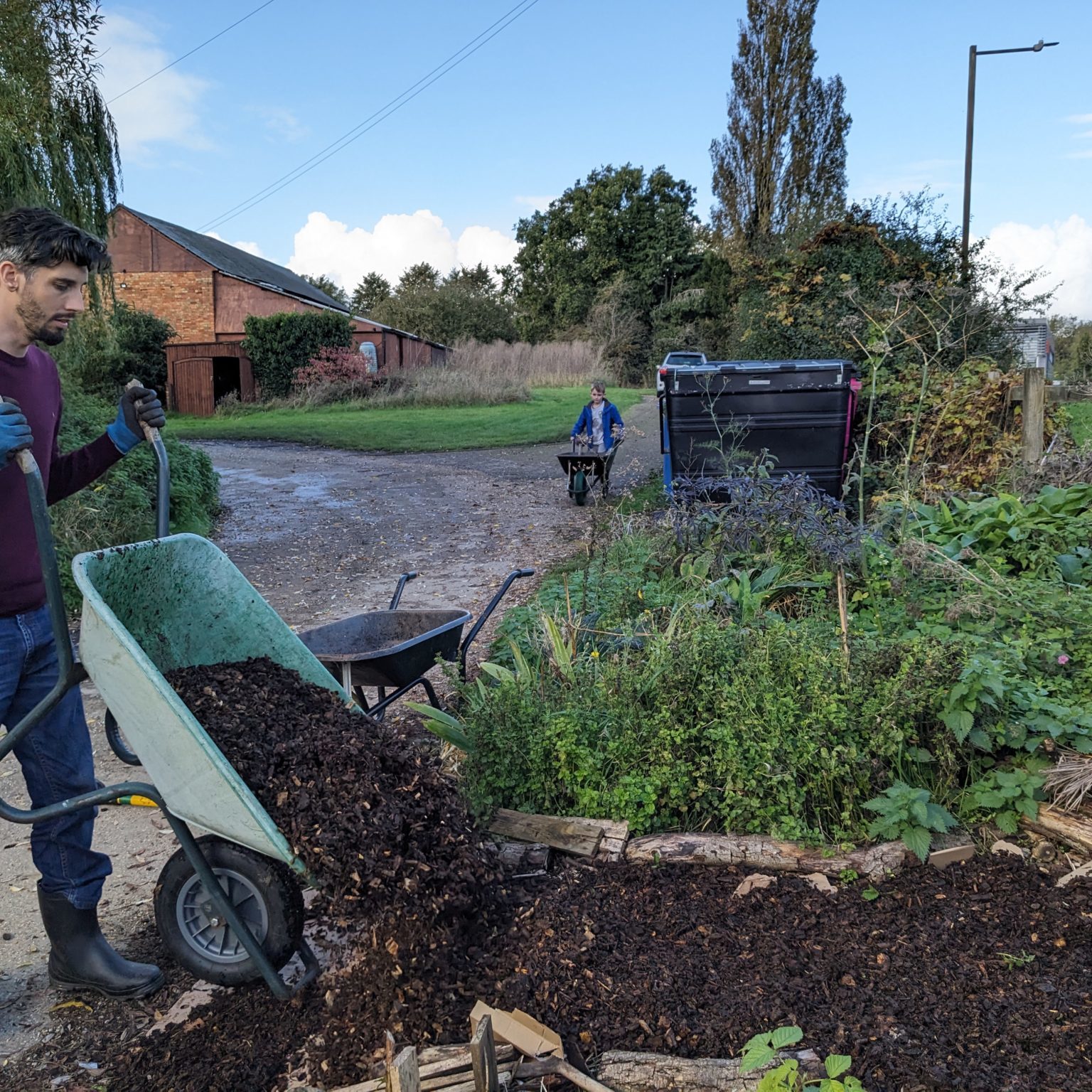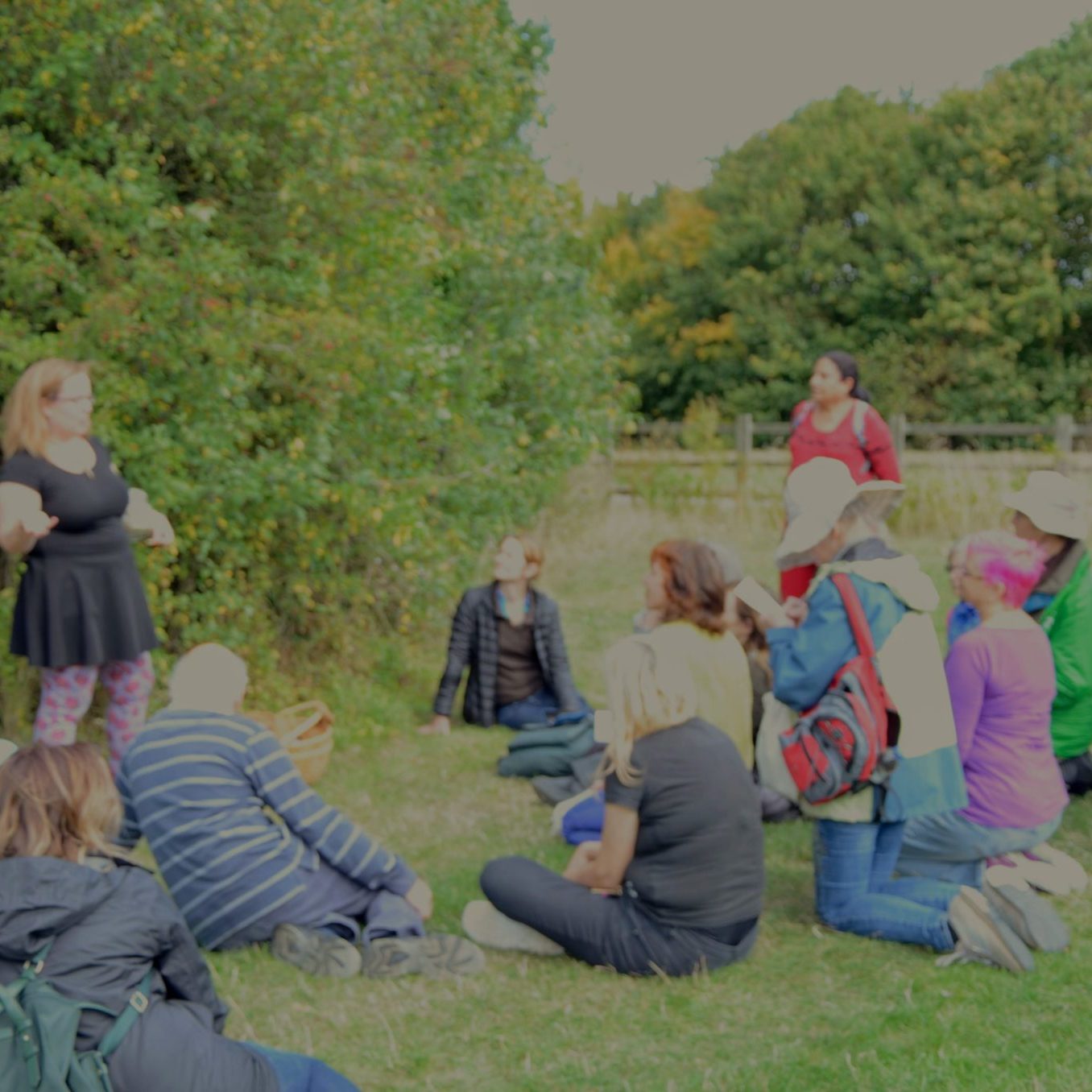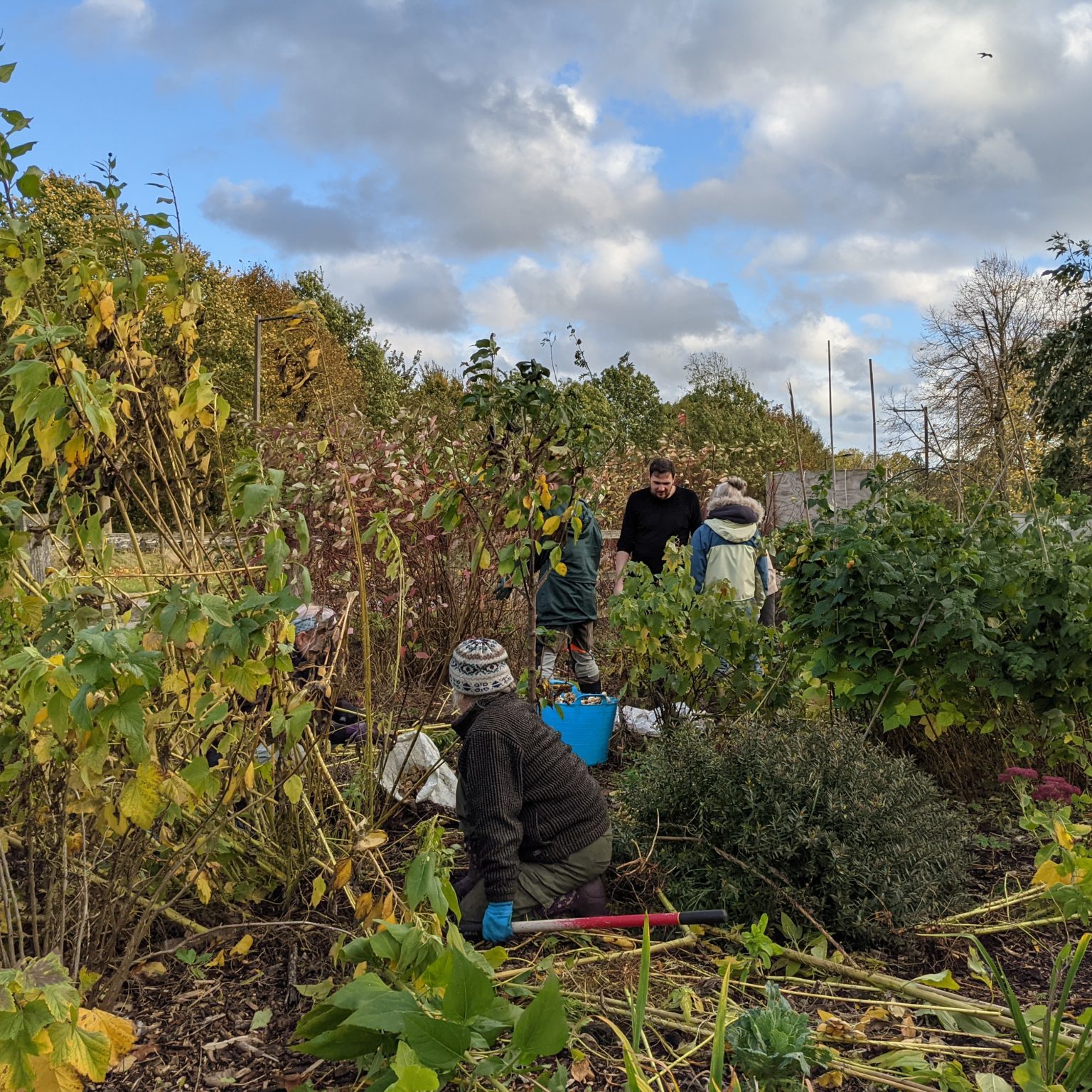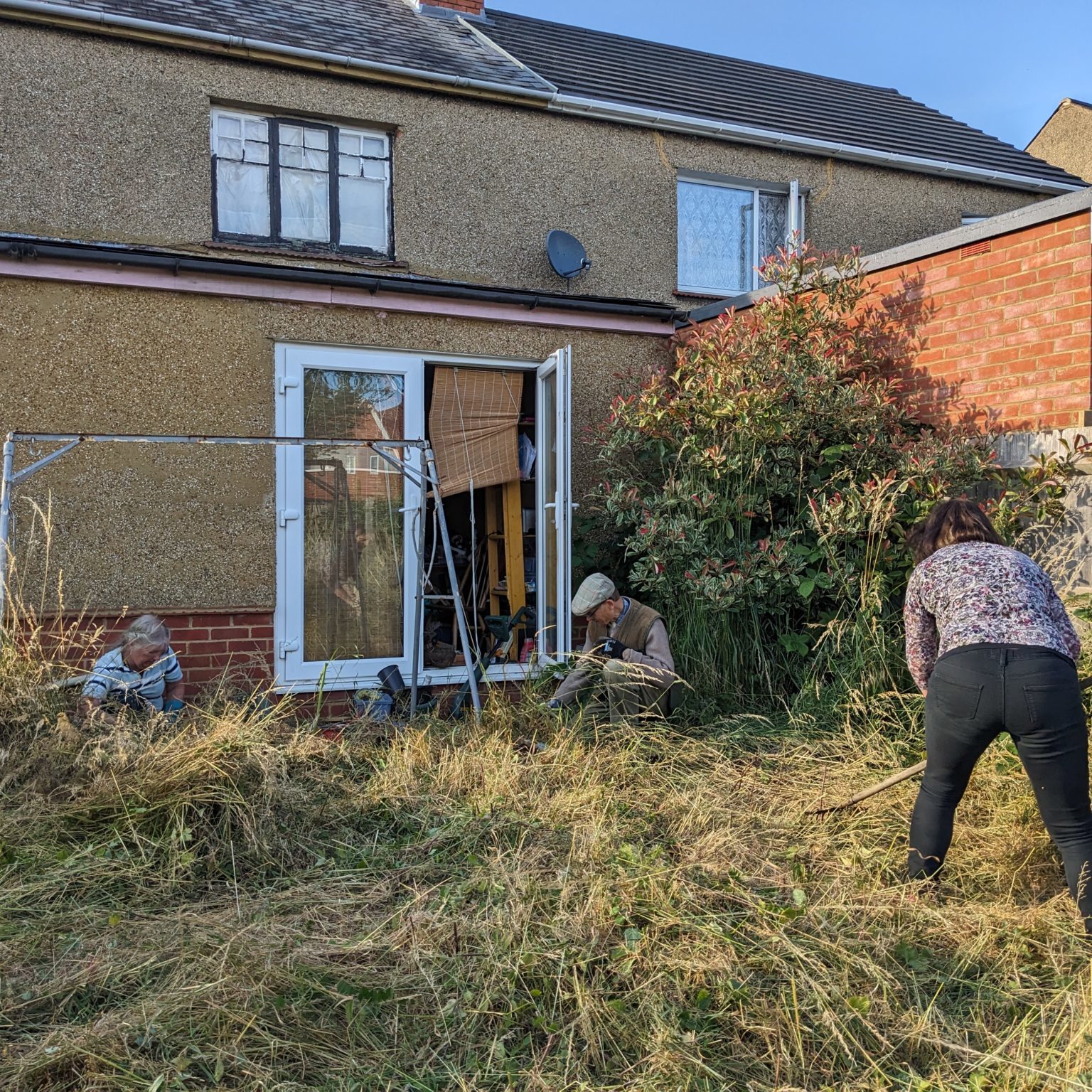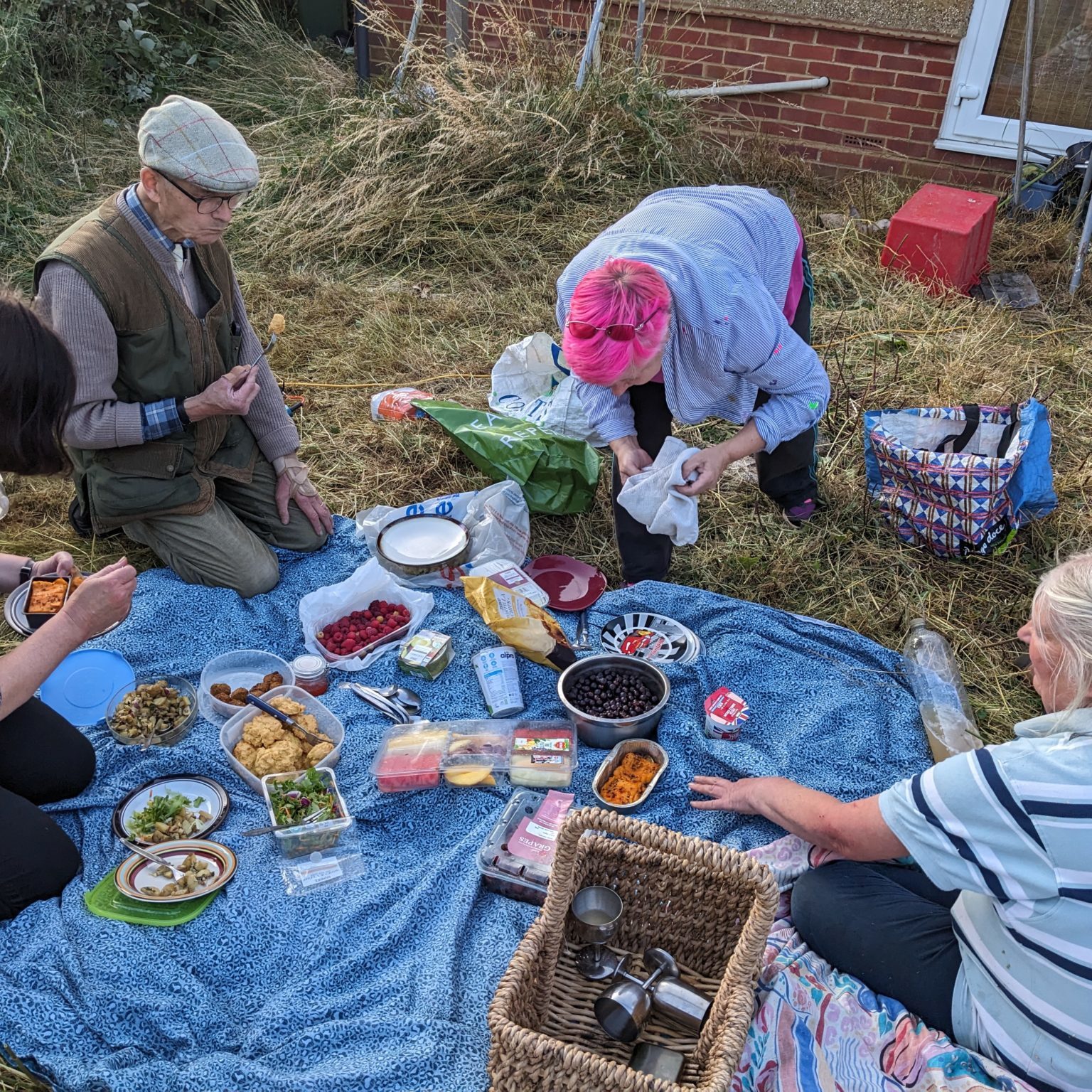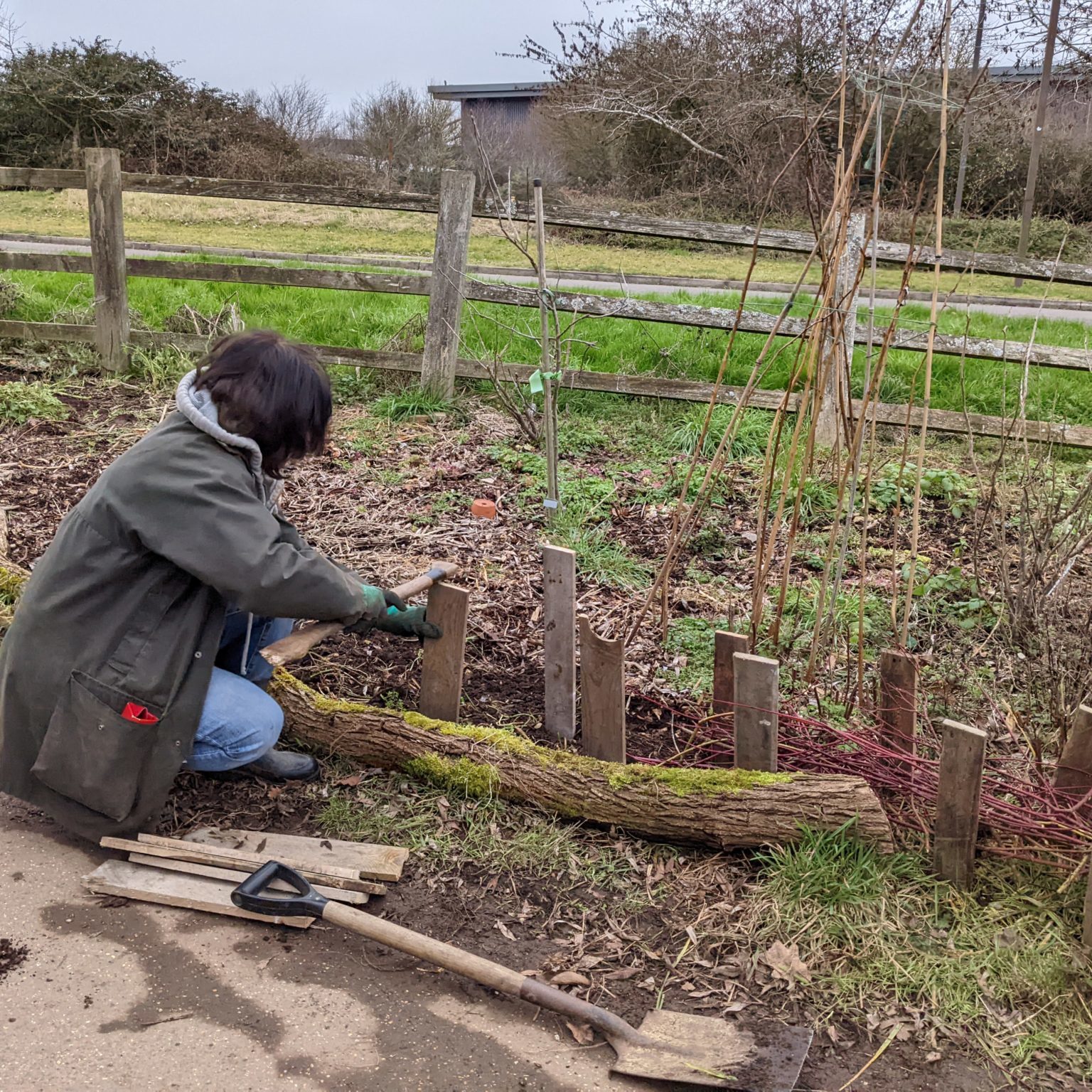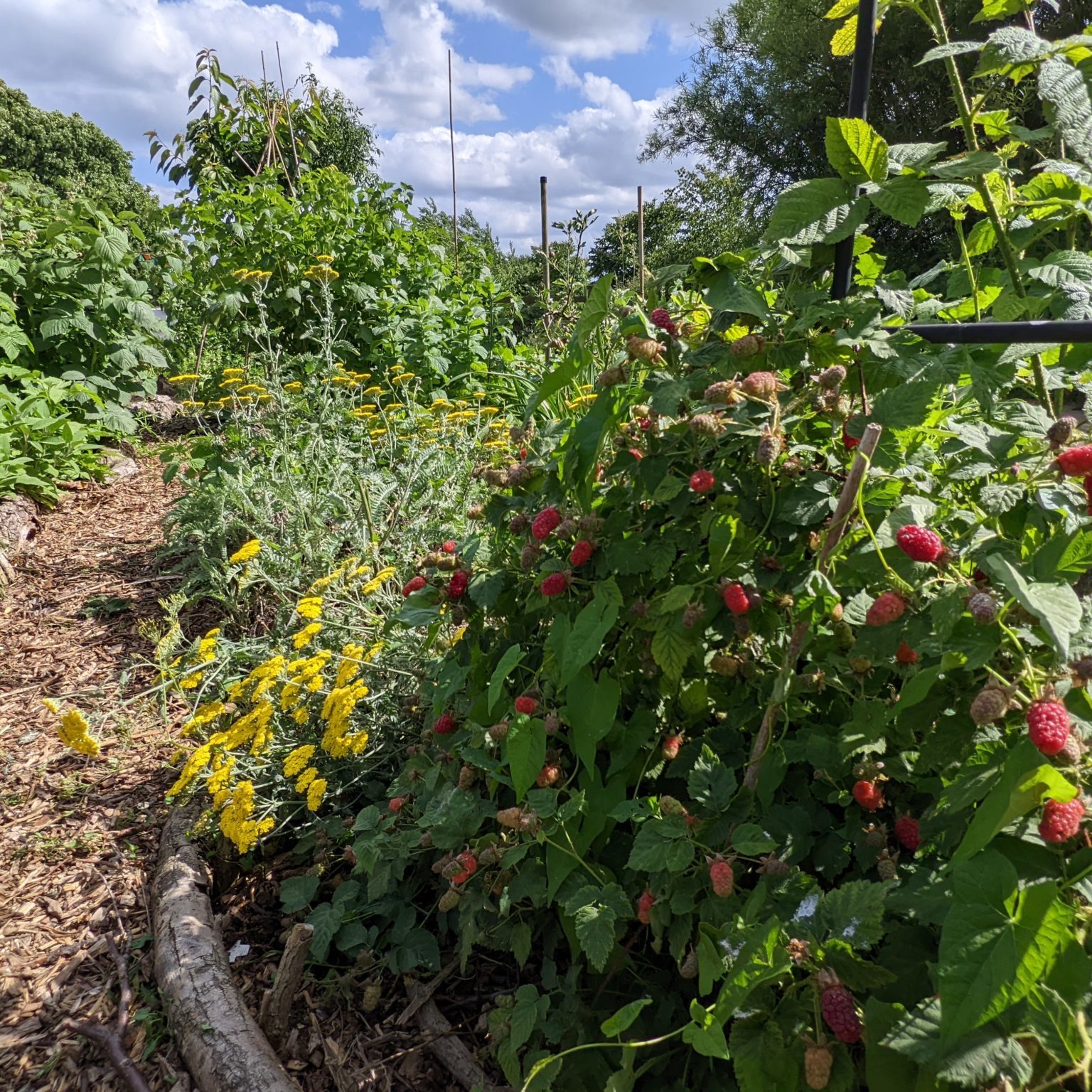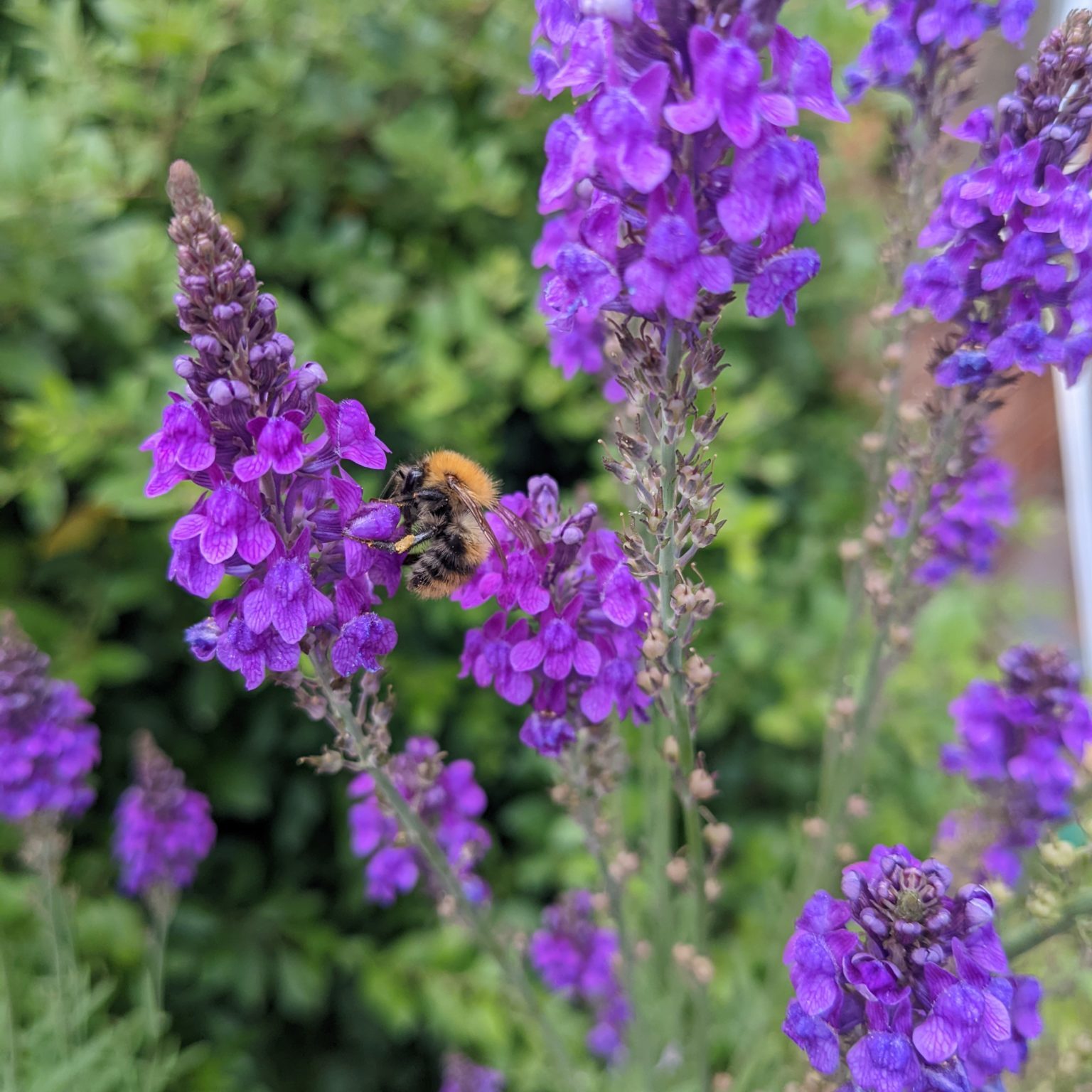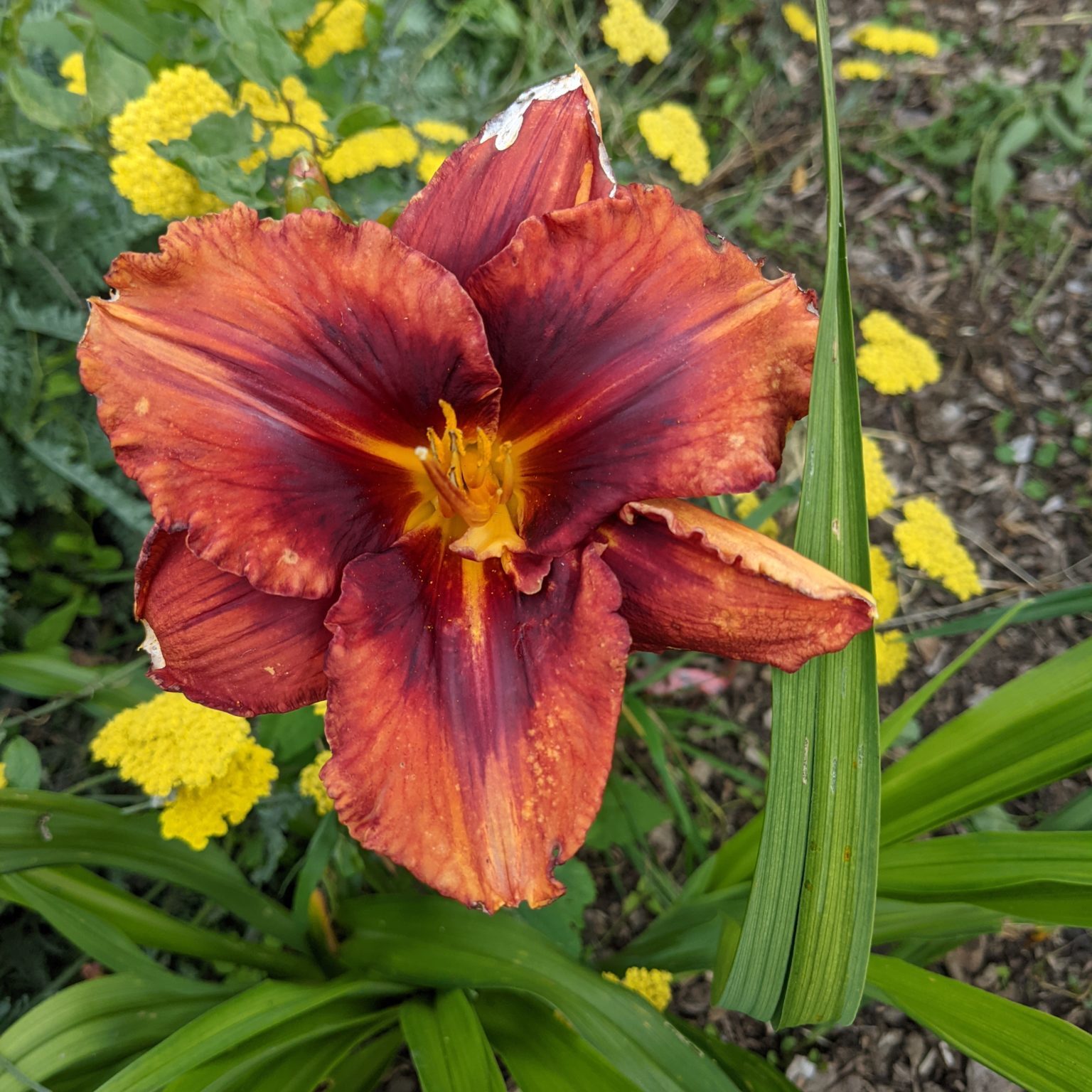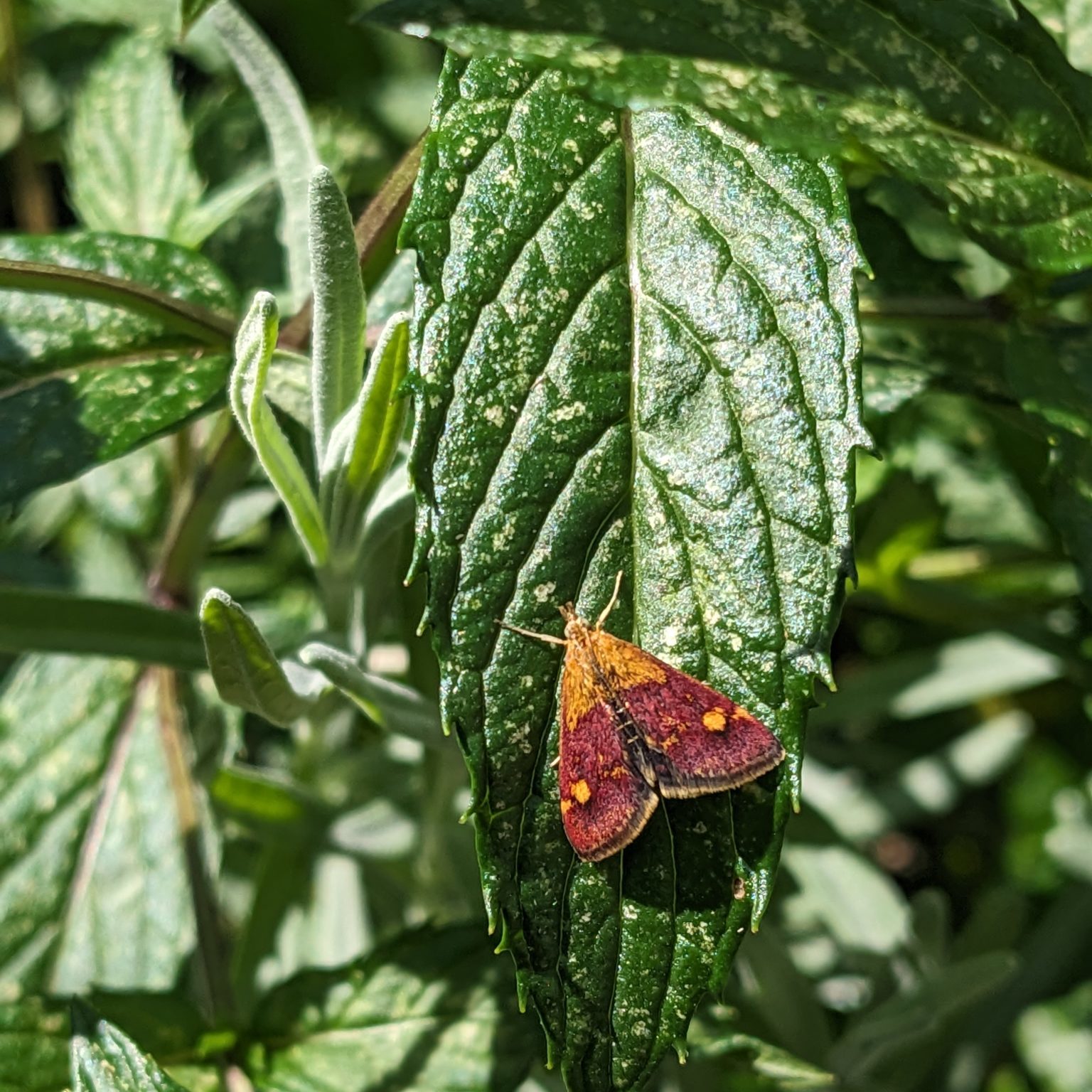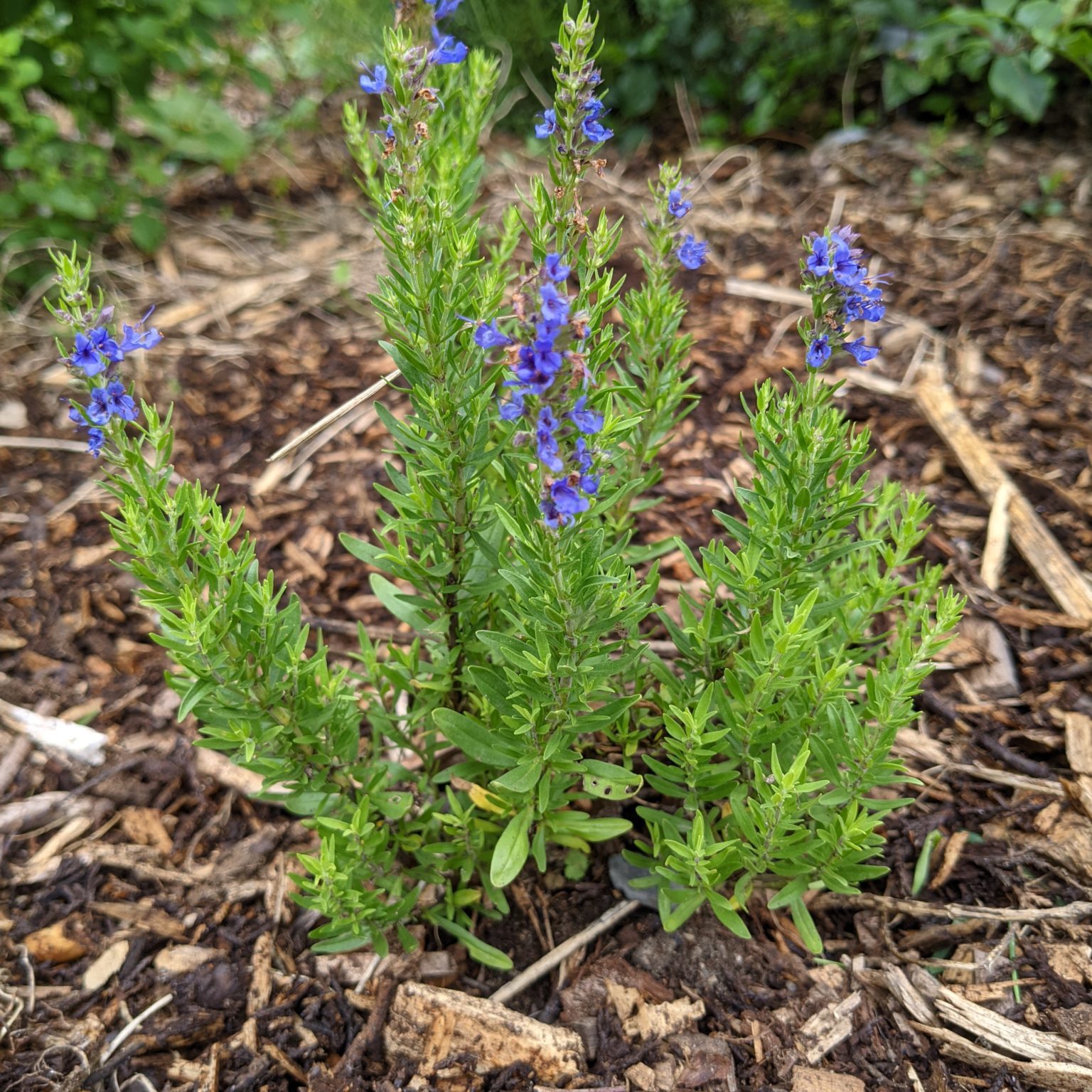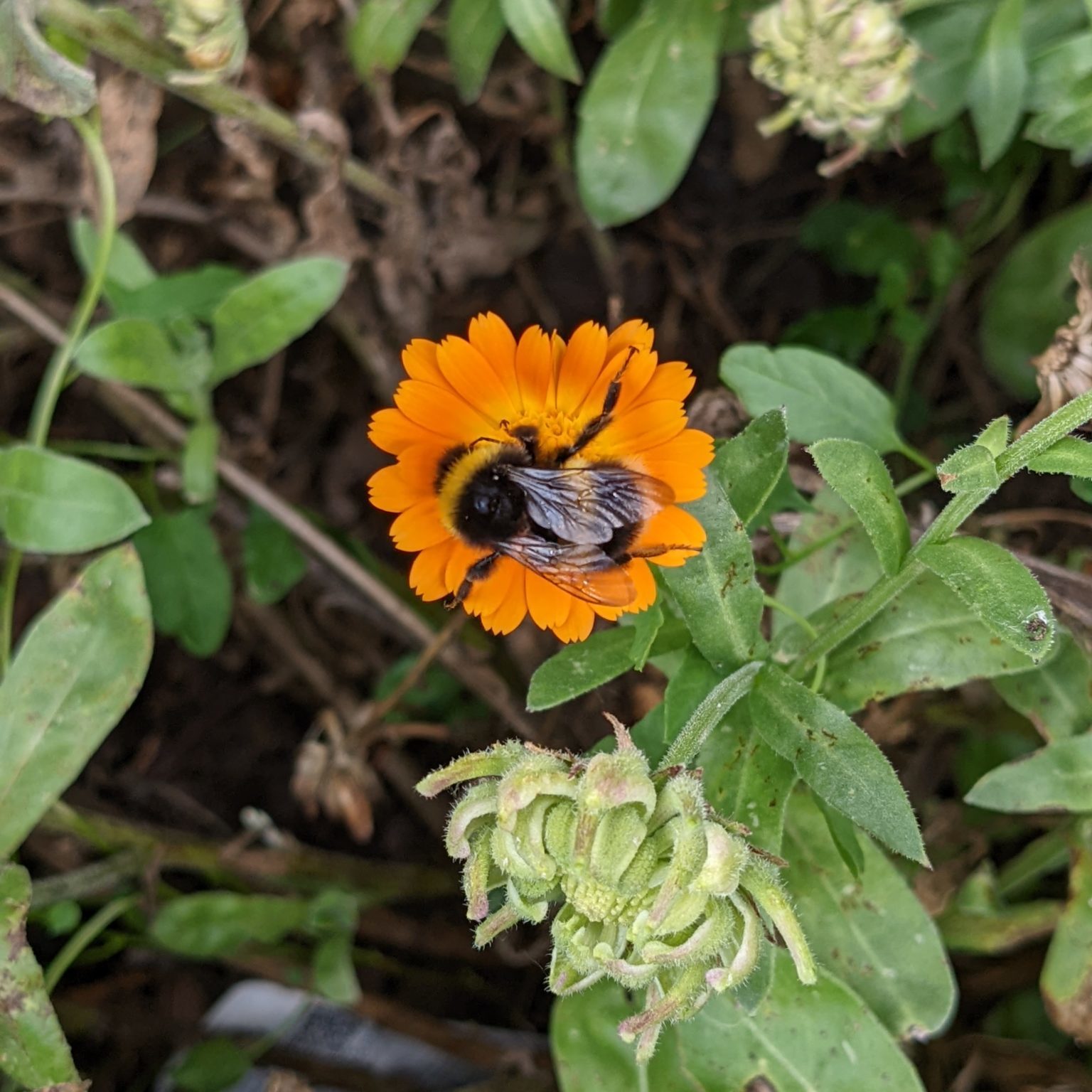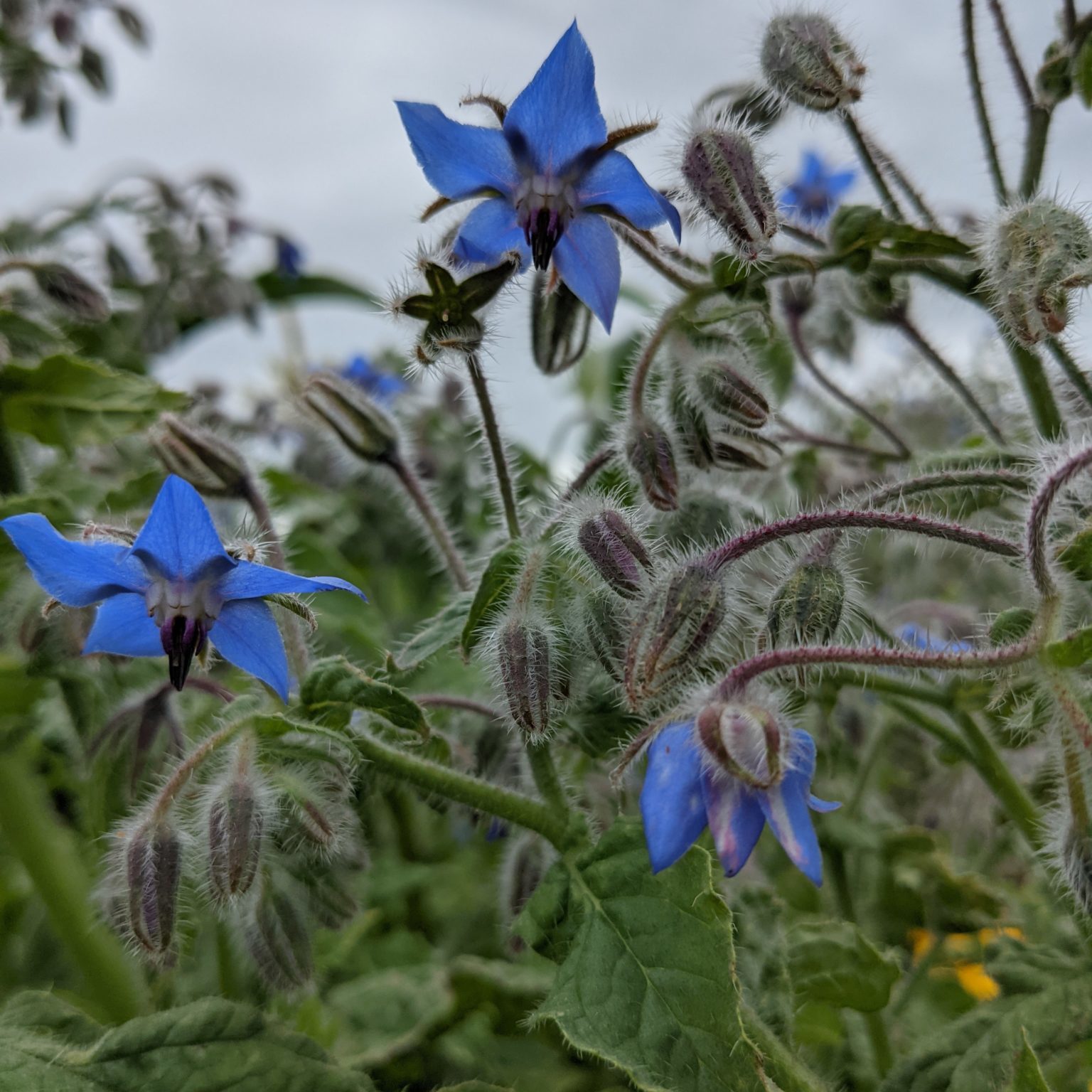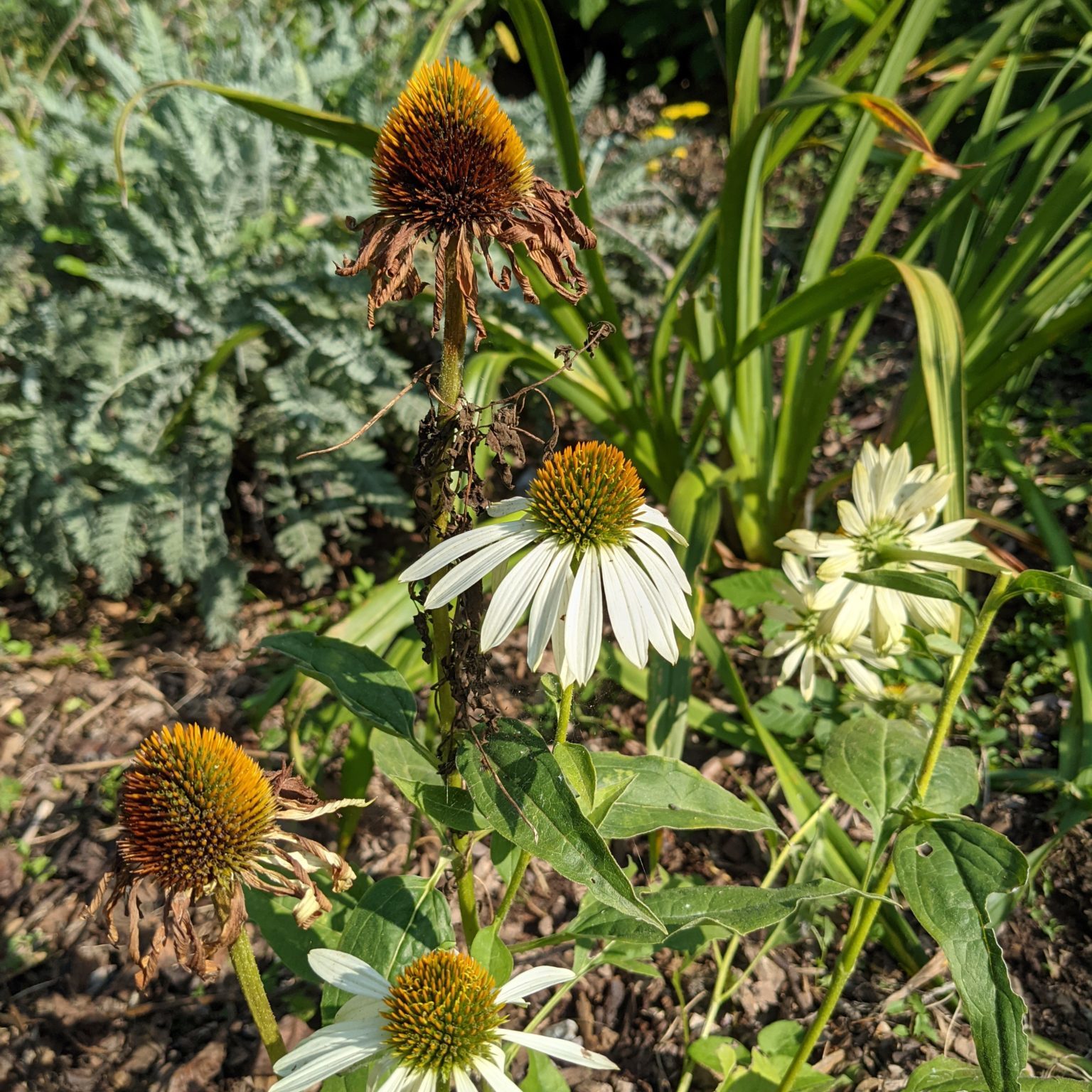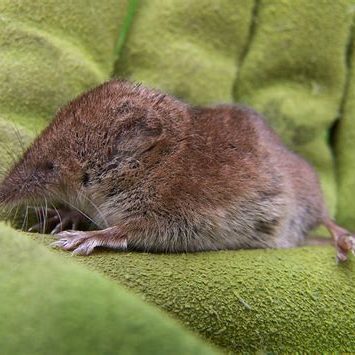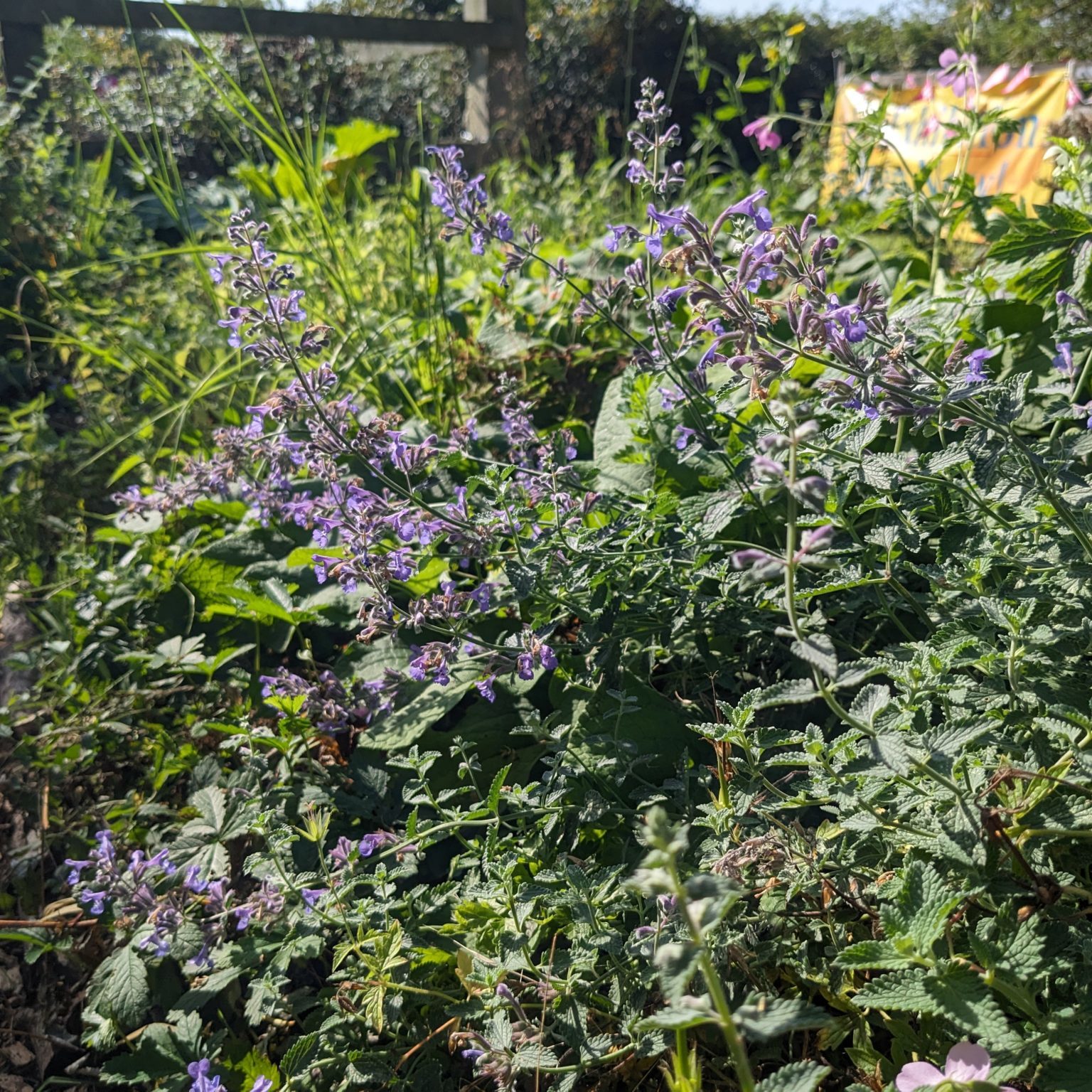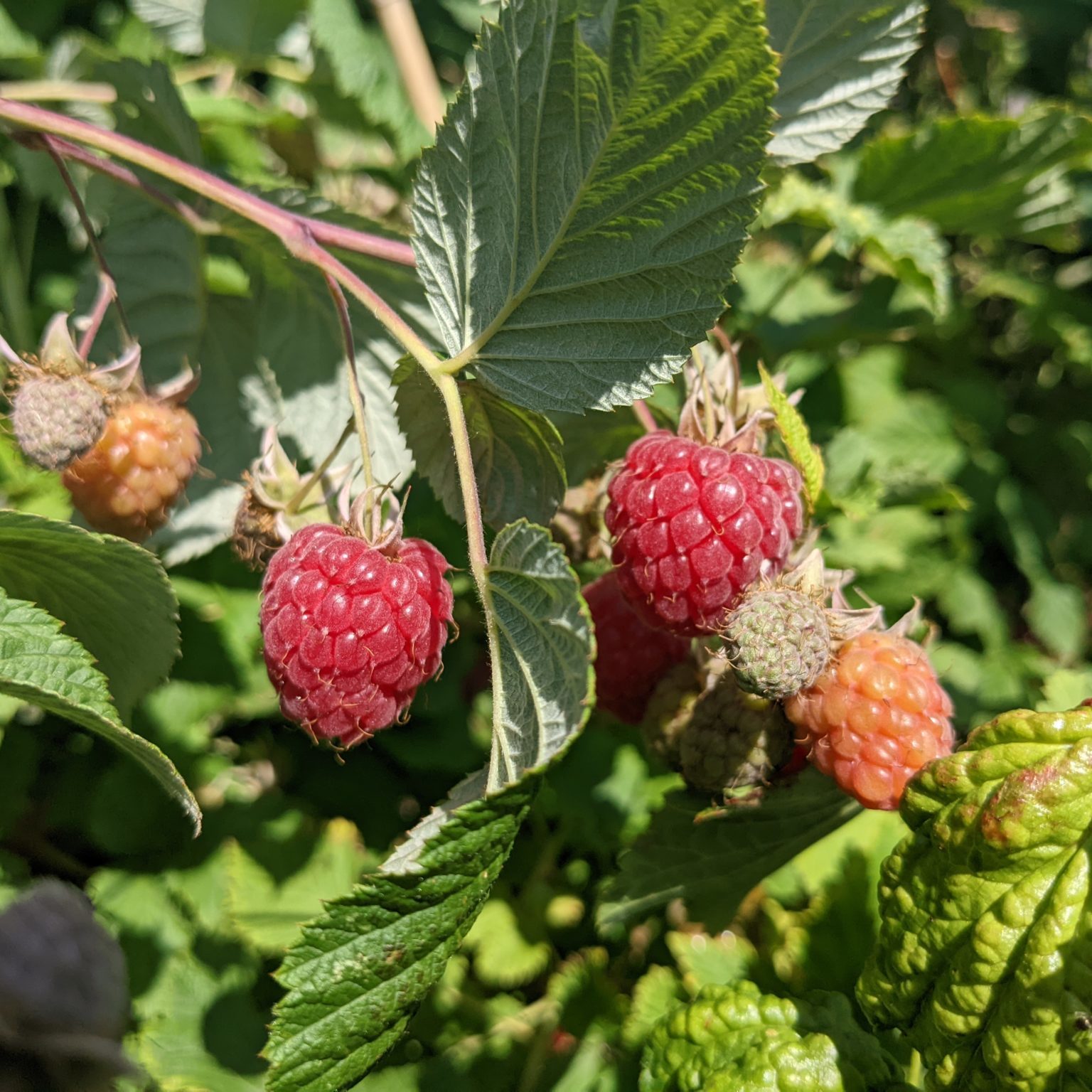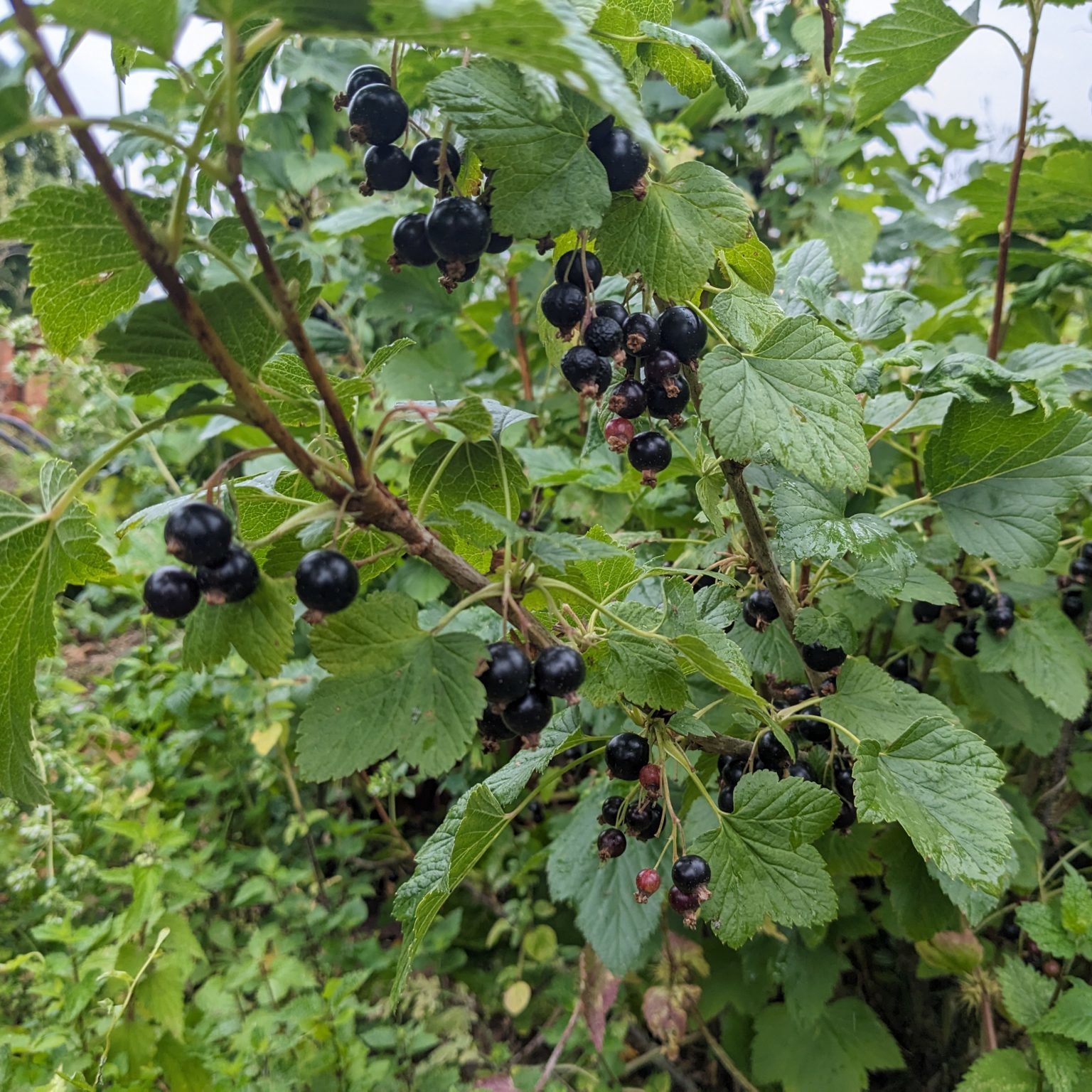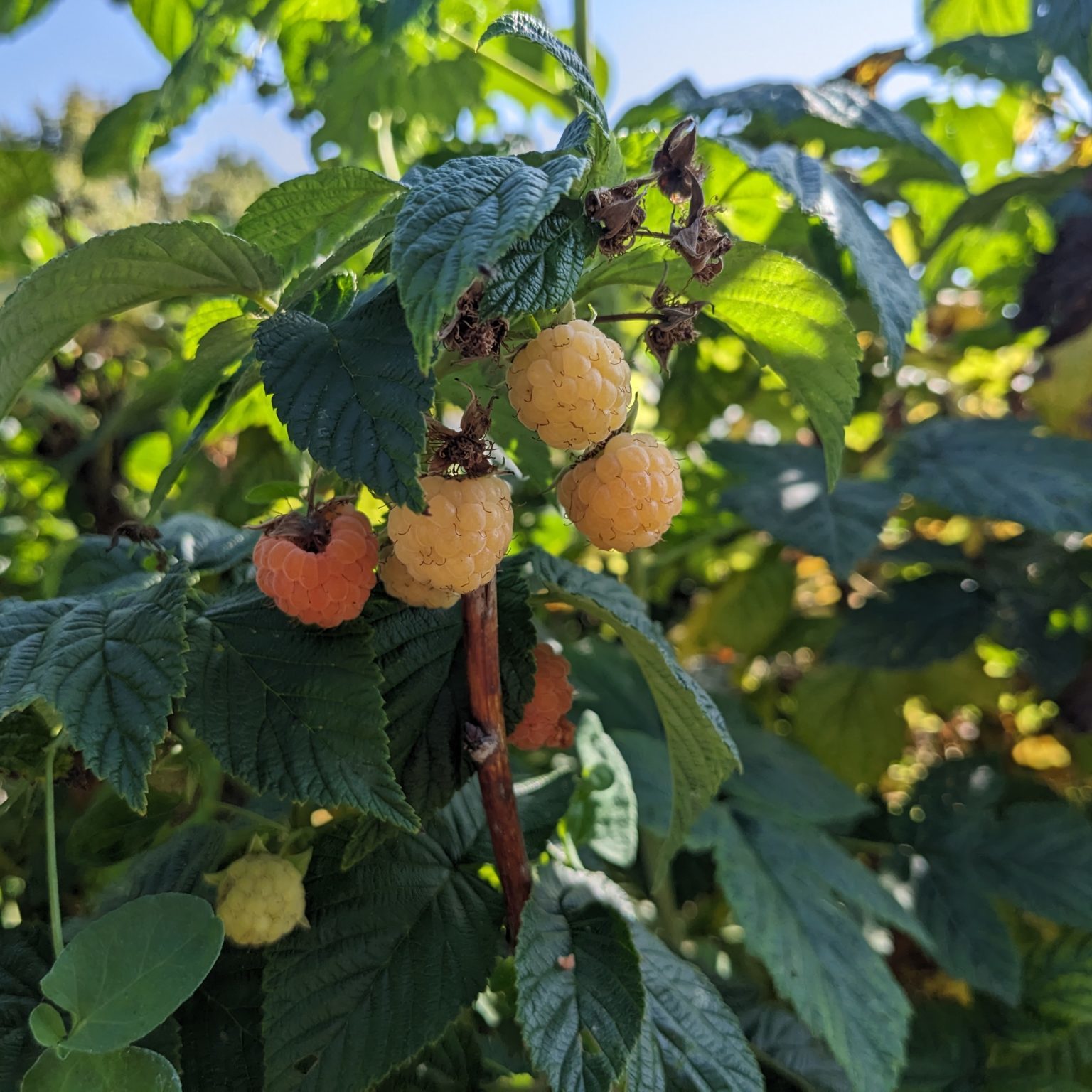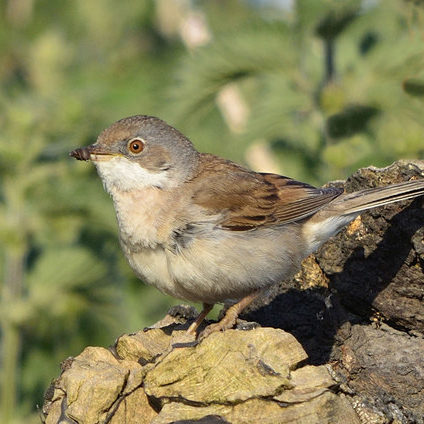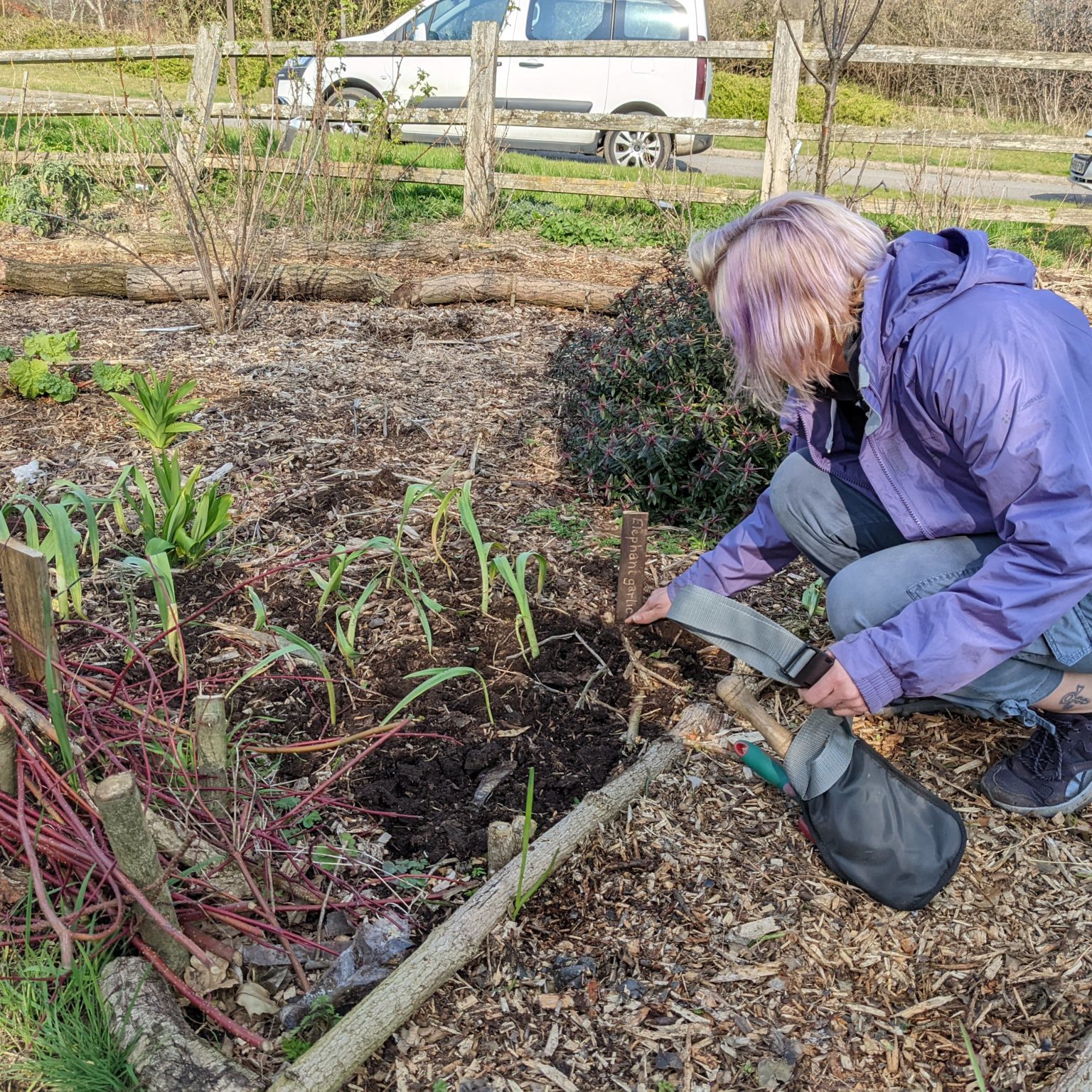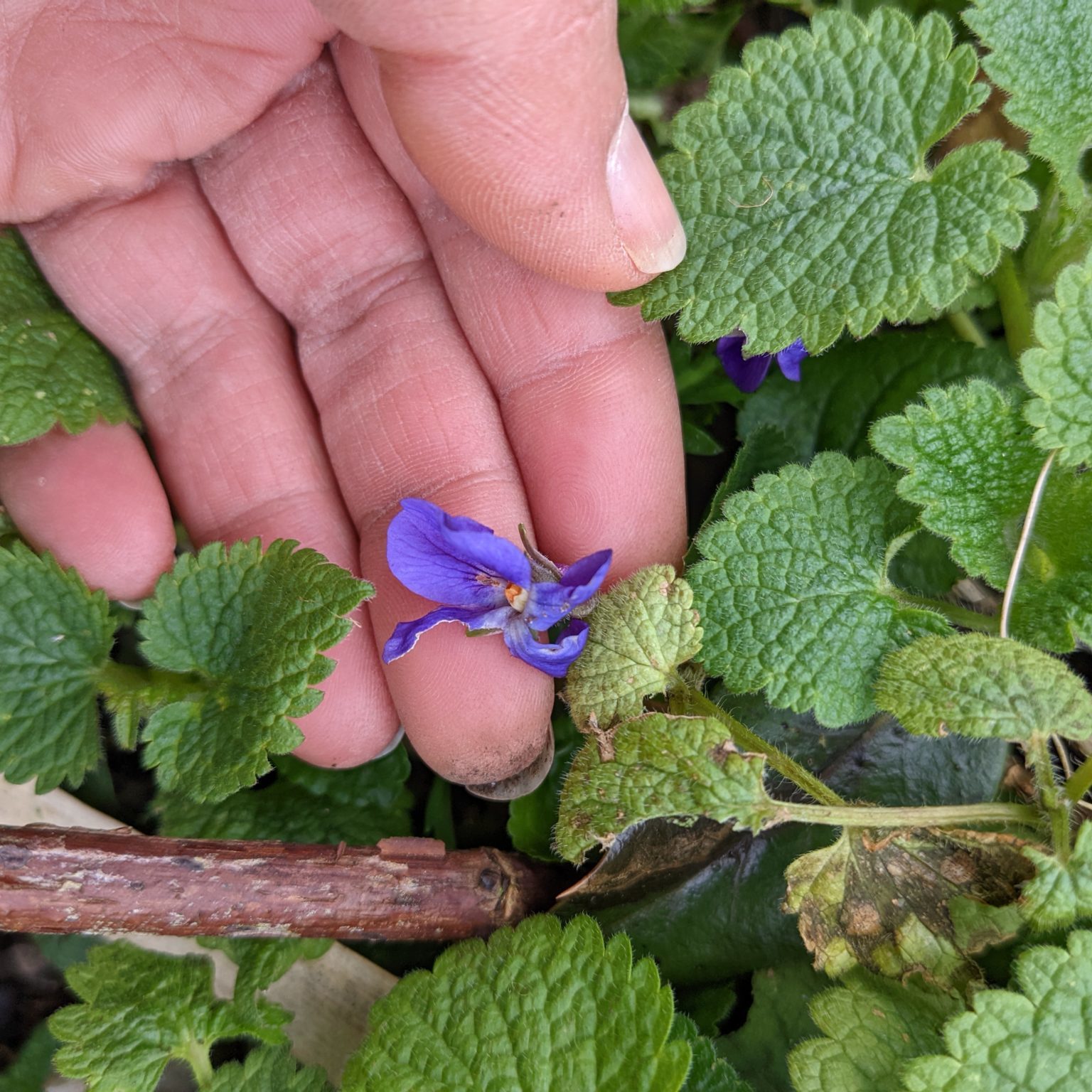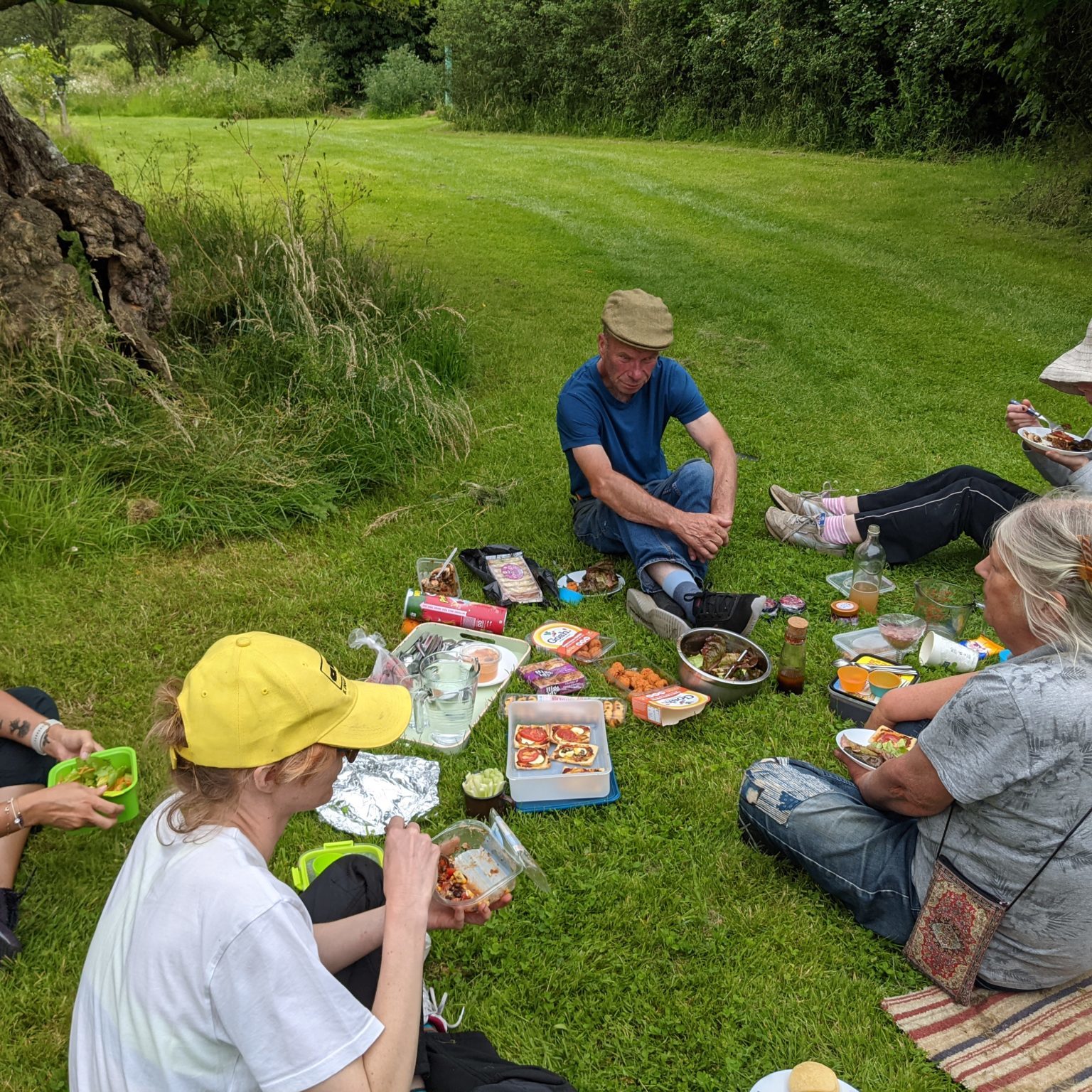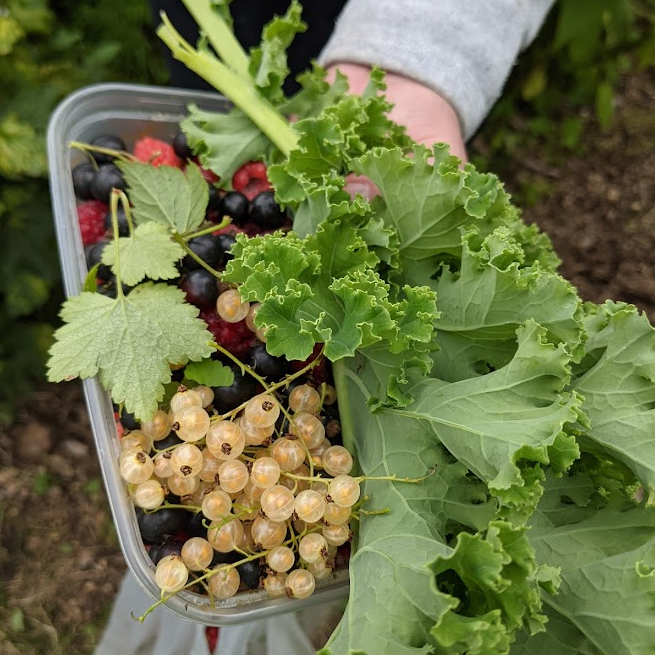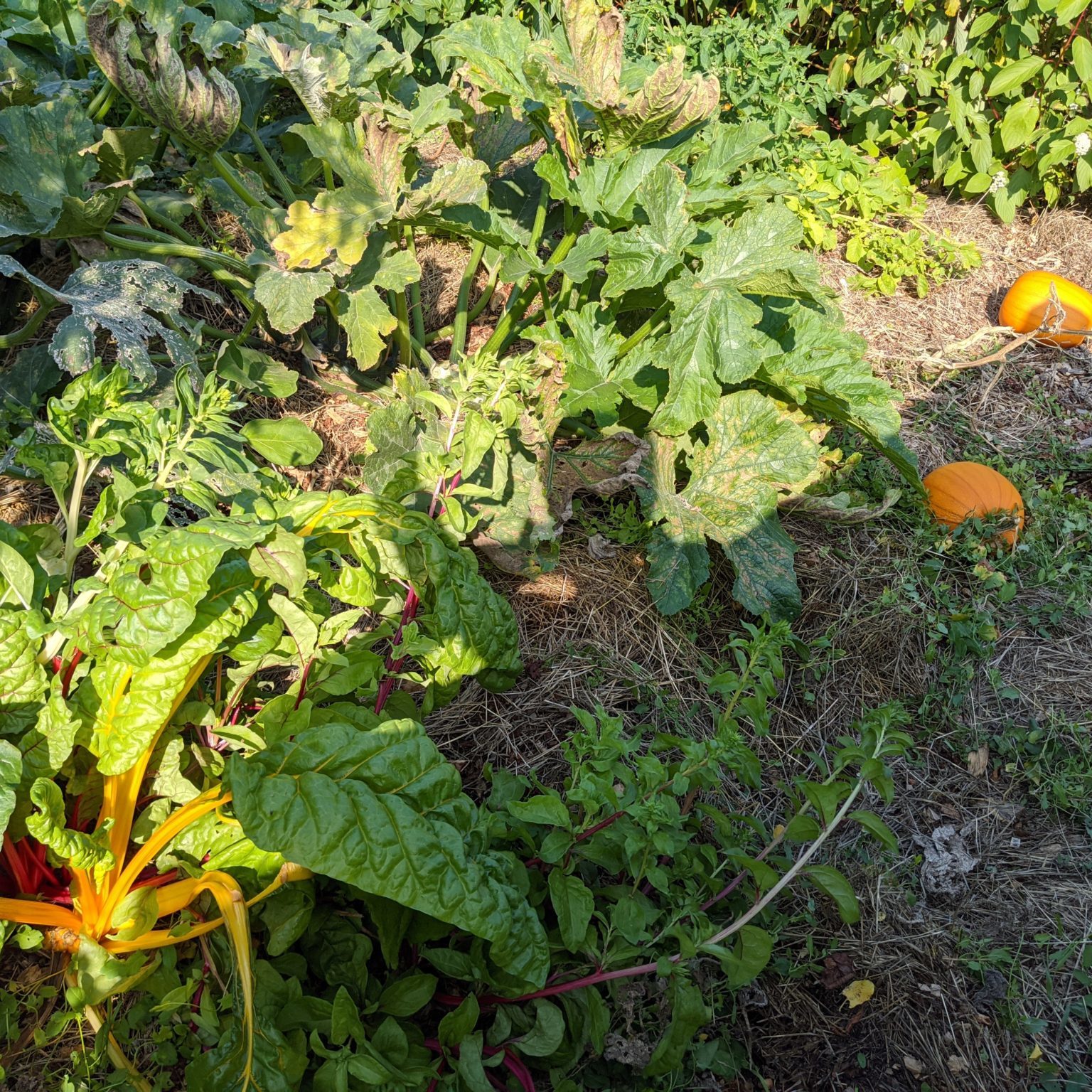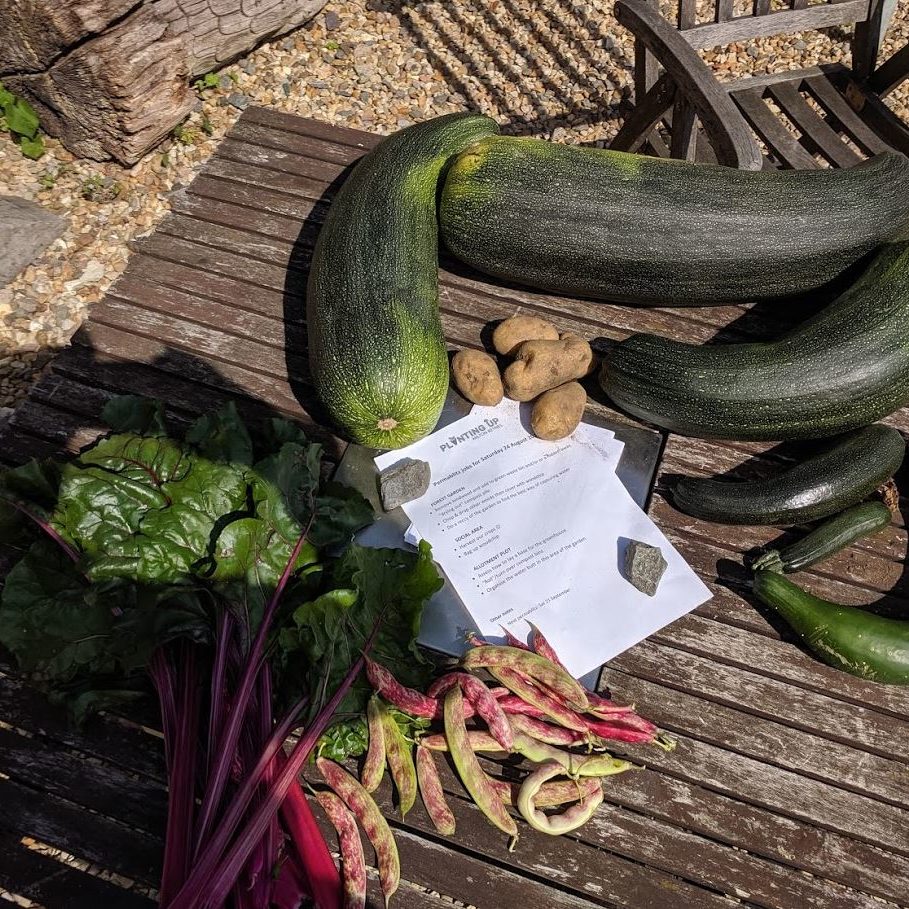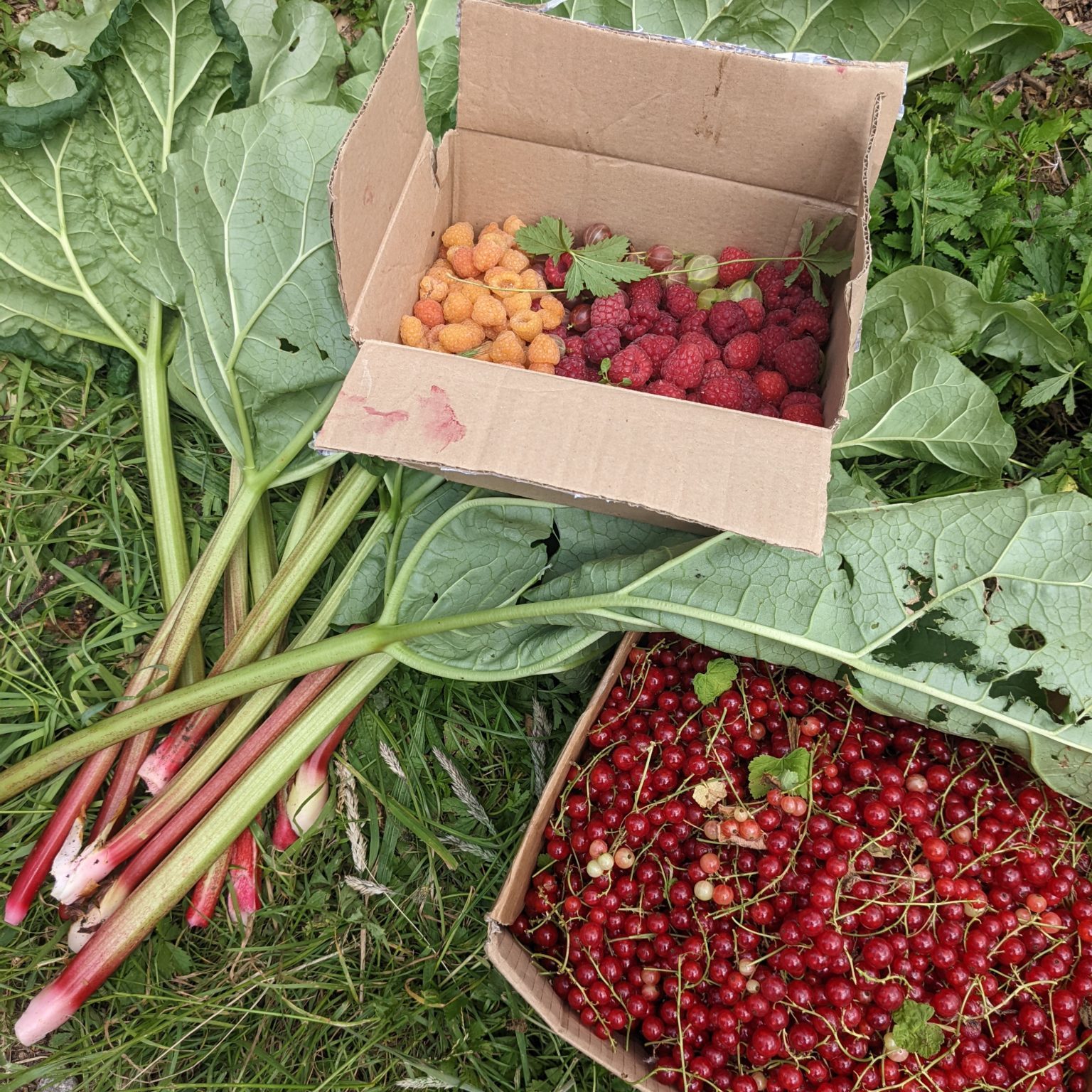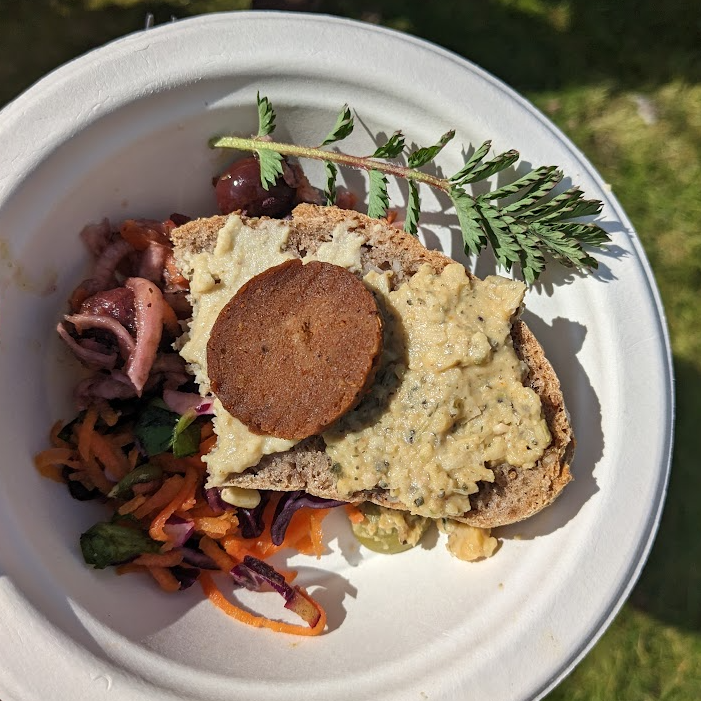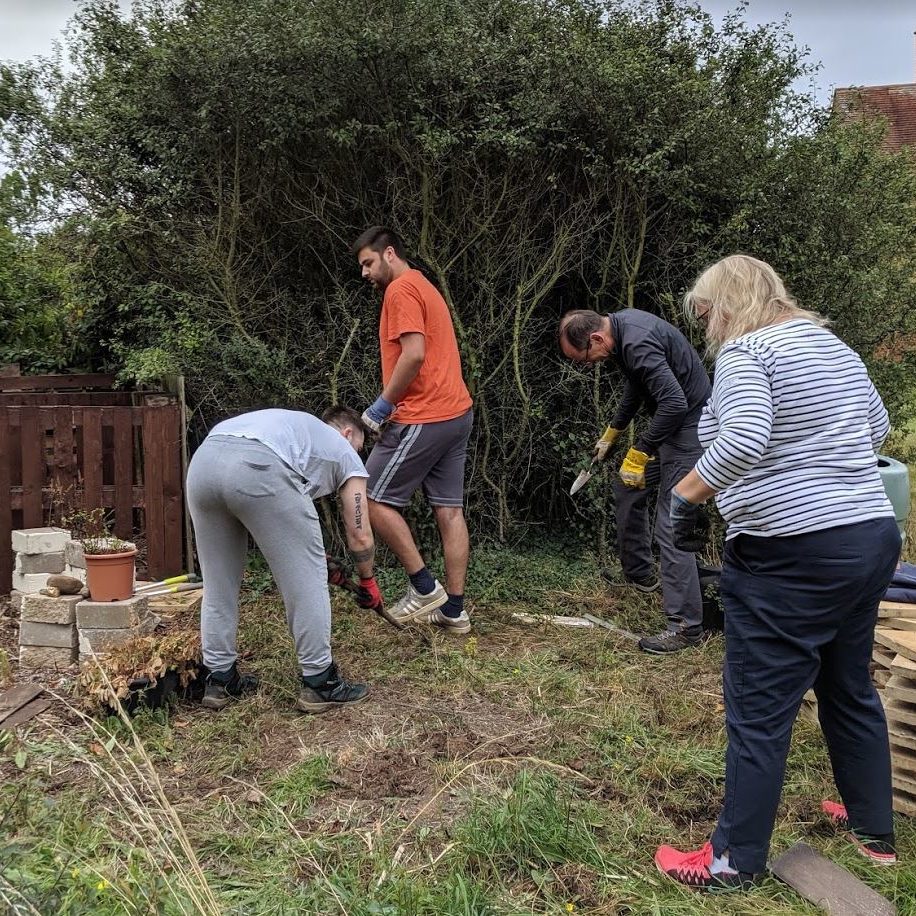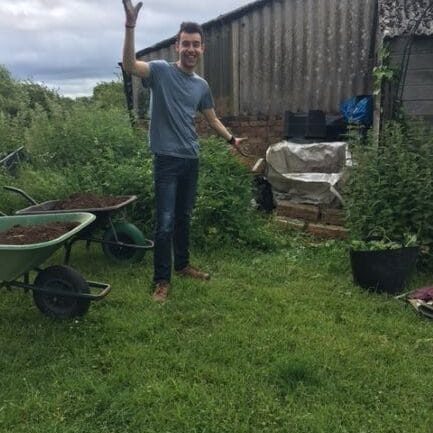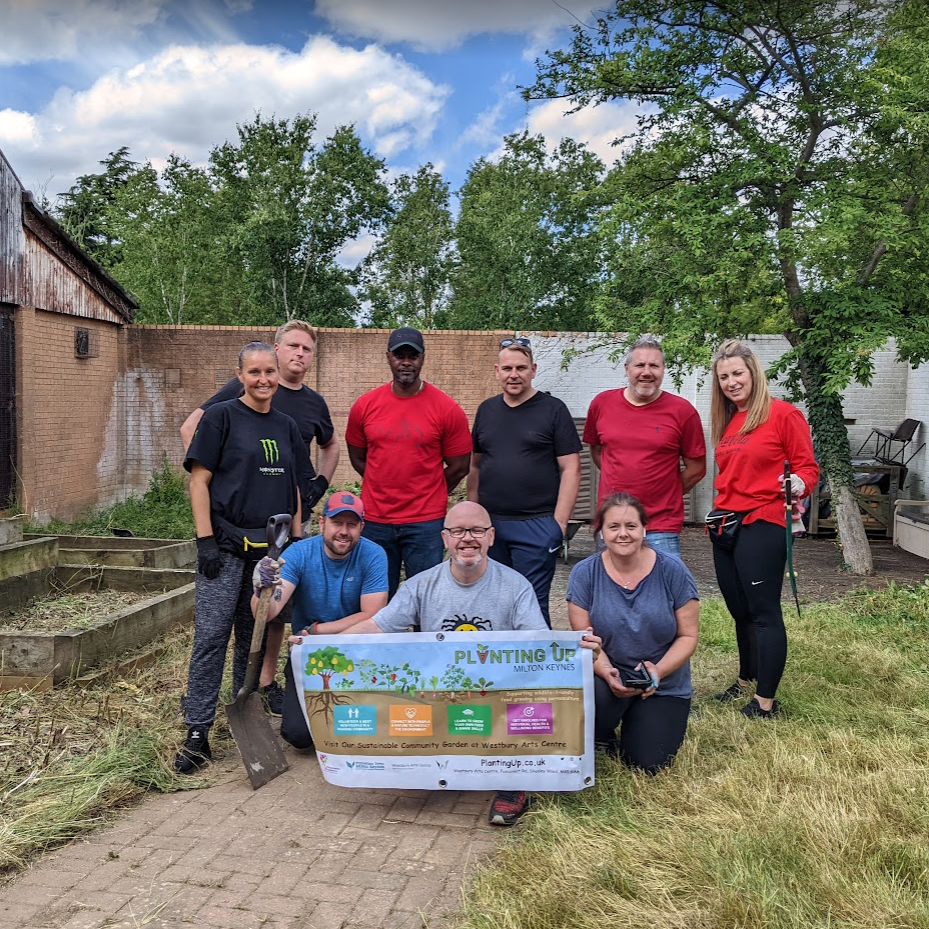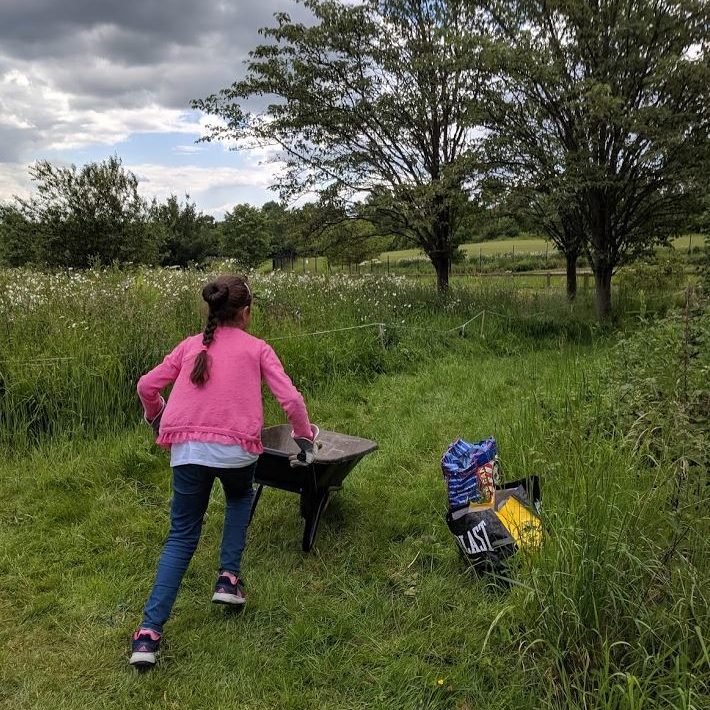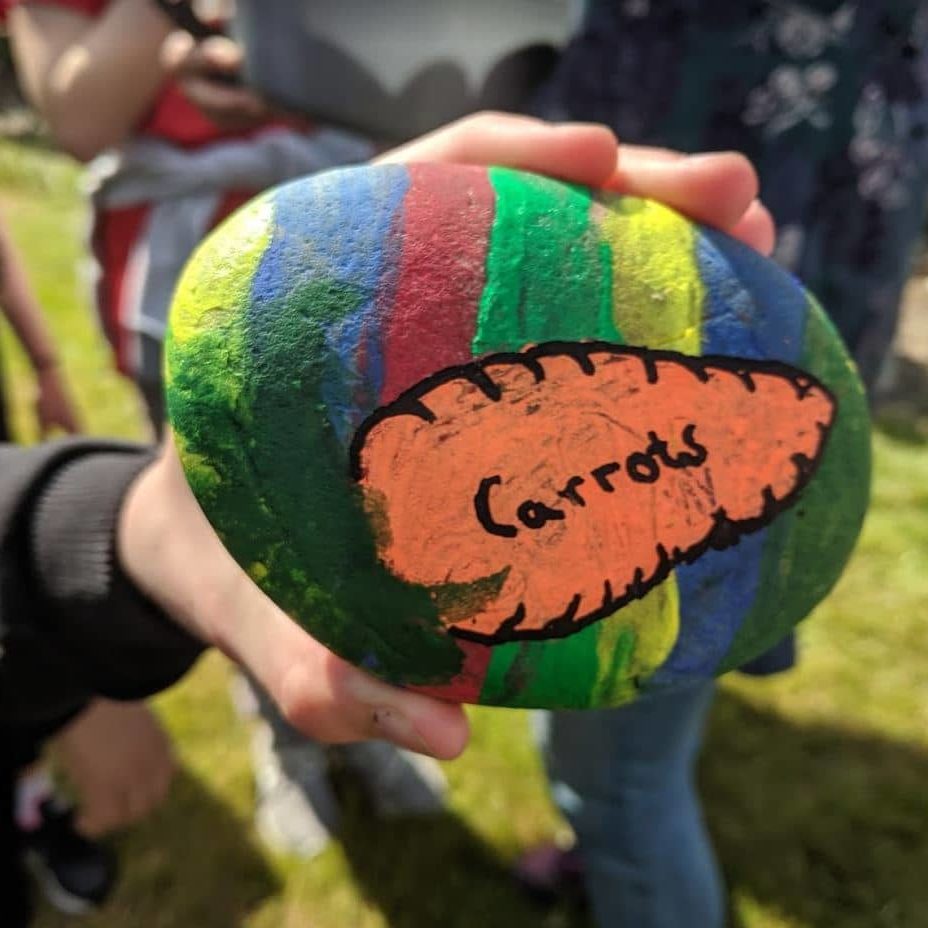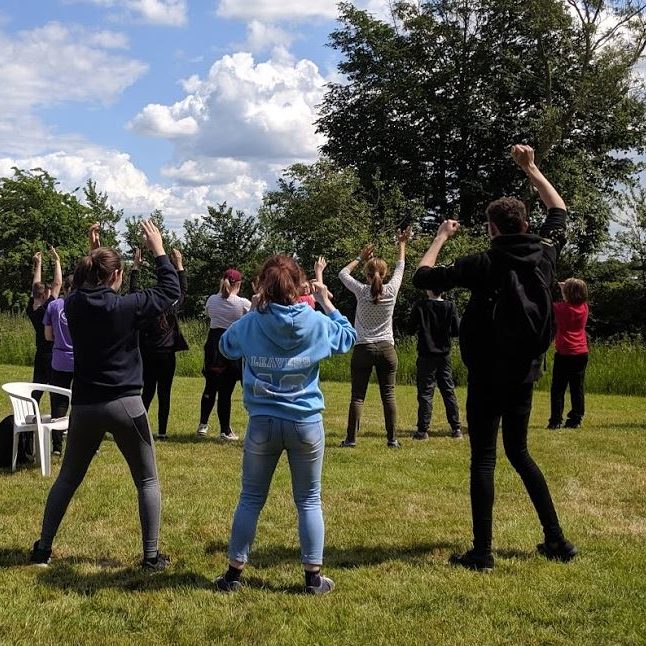Musings from Kirsty Forshaw, Planting Up:
Someone recently asked me to say something about the contribution that community gardens and food growing can make to increasing environmental sustainability and awareness of environmental issues in Milton Keynes (MK). This got me thinking about how the very fact they do this, is such a motivating factor for why Planting Up exists today.
At a time when we are beginning to put together our project plans for next year, in considering our environmental impact, I’m reminded of how this complements the social side of our projects so fundamentally.
This blog outlines my experience of the Planting Up journey so far and what I’ve seen our community gardens contributing at a local level and to the world at large that define our “why”…
Promoting biodiversity and conservation
By providing a space for individuals and communities to grow their own food, community gardens promote biodiversity and conservation through sustainable gardening practices. From a personal point of view, that was what interested me most about the Planting Up project when we first started discussing the potential for it at a Transition Town Milton Keynes (TTMK) meeting back in 2017.
How it all started for me
As a child, I’d always had a love of nature and being outdoors, and that interest took me from playing outside, and watching and taking pictures of wildlife, to later choosing holidays to participate in conservation work, and doing some wildlife volunteering closer to home. But as I got older and I learnt more about the climate and ecological crisis, I began to question just how much impact I was having on these isolated, individual projects to really protect the natural world that I loved so much.
After years of getting angry and upset about the mess our world is in and feeling powerless to do anything about it, when friends didn’t want to talk about it and the CSR initiatives of companies I worked for just didn’t cut it anymore, I started to look to local groups to see how other people were dealing with the issues. It was at that point that I found our local Transition Town and learnt about the concept of permaculture that goes hand in hand with it, which together, gave me a completely new perspective and empowered me to make a more meaningful difference in my life.
The sad realisation was (and still is) that our environmental problems are created by humanity’s insatiable demand on resources, but TTMK taught me how, rather than getting bogged down in protesting the problems, we can direct positive action using natural perma-culture solutions, starting right here and now, in our local communities.
I remember how mind-blowing and inspiring it was to see how this ethical design system can take knowledge of nature and natural systems and use it to provide for the needs of humanity in a way that endlessly enriches biodiversity.
Bill Mollison christened it perma, as in permanent or sustainable, and culture, meaning not only agriculture, but broader culture as well. So, simply put, permaculture is a system for designing sustainable human environments.
Our community garden
As testimony to how effective Transition Town’s community-led approach is in creating grassroots initiatives that build community resilience and create a more caring culture, it didn’t take long for me to volunteer to lead the permaculture project with a handful of supporters when we were exploring the idea of creating a “food forest” in various discussion groups. Nor did it take long for Westbury Arts Centre to agree to us using a small plot of neglected land on the entry road to their grounds for our first community garden. From there, the rest is history as we worked together to hone the garden design with a qualified permaculture practitioner so that it worked for everyone involved.
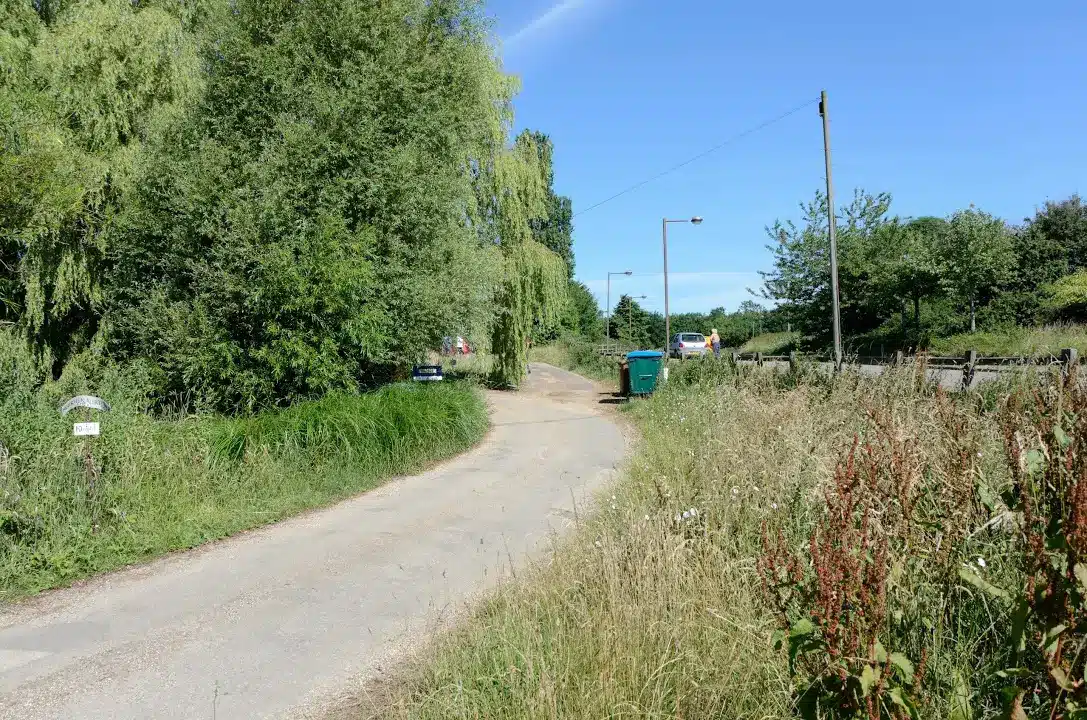
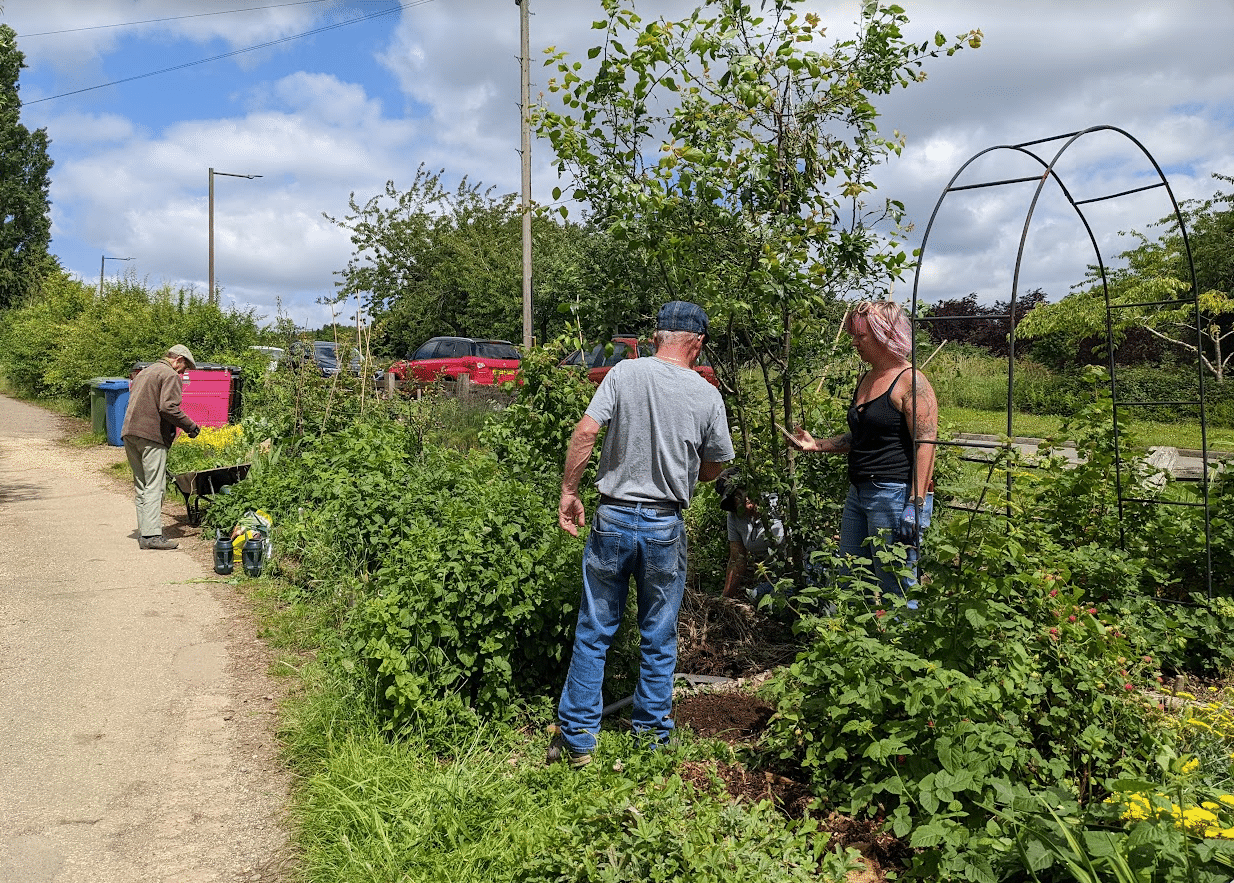
By bringing in people who could help us from the local area and the Transition Network, we quickly found that our community garden project was a fantastic educational tool that engaged people through hands-on experiences that not only got us sharing skills, but also helped to foster a deeper understanding of environmental challenges and solutions.
Education and awareness-building
Thanks to a successful grant application with Milton Keynes Community Foundation, we had around £1,000 to get our project off the ground. Every penny was costed, and because we had lots of helpful supporters contributing to the make-up of it, we made good decisions in how it was spent.
The professional design we had to follow from experienced Permaculture Association practitioners meant we were able to benefit from practical tips such as the mutually beneficial nature of sourcing cardboard, coffee grounds, and woodchip from local suppliers who needed to “get rid of it” free of charge. Our manure drops and plants all came from local sources too, and helped establish the garden quicker as we begun to focus on companion planting and meeting the functions of a permaculture garden.
We also costed in a series of public events from paid speakers that provided us with a platform for hands-on learning about permaculture-led sustainable practices, nutrition, and environmental stewardship. The events attracted good crowds that not only meant we gained volunteers, but also created a raft of local gardeners walking away with new, practical skills in things like composting, water conservation, growing food in small spaces, foraging, and organic gardening to apply to their own homes and communities.
A social space for sharing
This idea of our community garden acting as an open-air classroom offering opportunities for education and awareness-building is something we’ve continued from day one, and is fundamental to any community garden project we support.
Even when we don’t have the funds to bring in paid speakers and host big events, we are always keen to encourage shared learning within our garden work parties. After all, we are firm believers that everyone has something to contribute to what we’re doing.
Subsequently, it’s been clear to see how the experience of us working together this way fosters a sense of responsibility in the garden, with each other, and to the environment that also inspires positive behaviour change among our group and the wider community that engages with our ideas.
Our community garden serves as a social space that facilitates knowledge, skill sharing, and food giving, which we enjoy when chatting in the garden and when we are sitting and eating together on our many snack breaks and “bring and share” lunches. All of this, together with being active in our green space, means we couldn’t really ask for a better way of supporting positive mental health and wellbeing among our volunteer group.

We often have passers-by stop and talk, and have nibble on whatever we have growing that’s ready to eat. It’s beautiful how our community garden brings together people from different walks of life, whether it’s volunteers dropping in to help occasionally or as regulars shaping the next phase of the garden.
We learn so much from each other, and this aspect in itself is relevant to increasing awareness of environmental issues and sharing information in general, as we’ve had the pleasure of working with individuals from different backgrounds and with different skillsets, all working together and supporting each other over the years.
For me, starting Planting Up was inspired by a love of nature and giving something back to the natural world, but over the years this has turned into a love of nature and of people, where the two work in harmony together for most impact.
I look forward to seeing my friends in the garden, and even when I haven’t been physically able to work in the garden (due to allergies), I’ve always enjoyed the connection with other people that our community garden brings. Since we started the project in 2018, I’ve picked up lots of new recipes this way, shared a multitude of seeds, and learnt an plethora of new things (- from how to grow plants I’ve never grown before, and the magic of fermentation, to life-changing book recommendations, and everything in between). I’ve also met amazing new friends through the group, completed various courses with members, and found a whole host of other environmental actions to support; including participation in a transformative online group led by one of our volunteers where we read Active Hope together.
In the last couple of years, our group has shown even greater capacity for supporting each other since one of our original core members became critically ill. When she wasn’t able to make it to the garden, our volunteers, past and present, went to her. We’ve had garden work parties to tidy up her garden, had personal “care packages” sent from previous volunteers that now live in different parts of the country, organised visits to see her in hospital, at home, and to take her out, and one of our members has quite literally been her life-line to help with everything from her shopping to her rehab where the Care system has failed her.
Promoting biodiversity
Another important contribution of community gardens is their ability to conserve and promote biodiversity. The Planting Up community gardens at Westbury Arts Centre and Grapevine Wellbeing Hub both prioritise cultivating diverse plant species that include pollinator-friendly (insectary) plants and a variety of (perennial) plants that will come back year after year that are edible, benefit wildlife, have a medicinal purpose, and that support good soil health (by gathering and sharing certain nutrients).
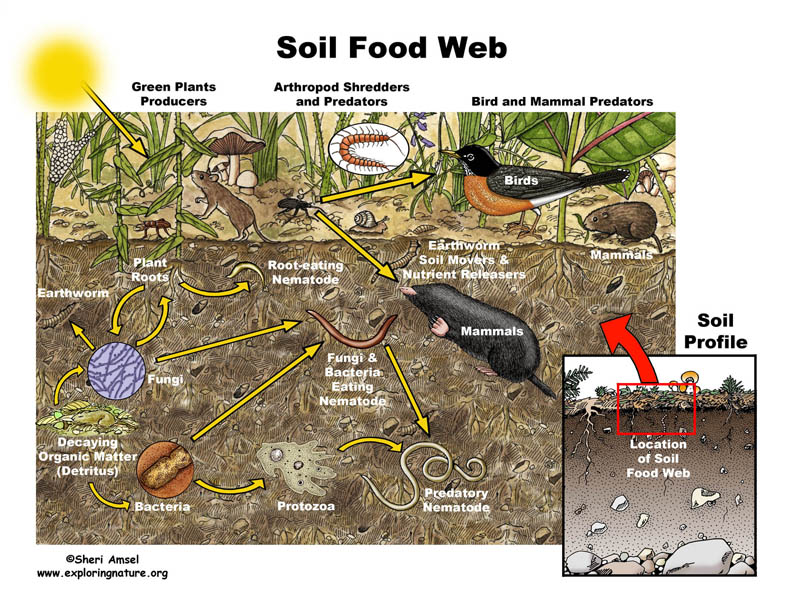
Because we are essentially doing a form of organic gardening that adopts “no dig” methods and doesn’t use any unnatural or manmade chemicals, it has taken a number of years to build our flagship “food forest” garden at Westbury Arts Centre. We took an unused piece of grassy land and through a process of building up the soil and planting it up with a focus on preserving genetic diversity, supporting ecosystems, and providing habitats for beneficial insects, birds, and other wildlife, we have created a beautiful green space for people and nature to enjoy.
Our garden at Westbury has developed from being a permaculture garden to a layered forest garden, and has consistently greened the urban landscape over the years. In doing so, it also plays an important role in conserving biodiversity and enhancing ecological balance, not least by providing natural habitat and contributing to the absorption of carbon dioxide and release of oxygen which will have positive impacts on reducing local air pollution and improving air quality. Although we haven’t measured these things (and would love to if anyone can help us with this!), over the years, we’ve seen increasing indicators of good soil health. For example, during the heatwaves we’ve experienced, we’ve seen how our soil has managed to retain water (under the layer of mulch) and from a biological point of view not only do we see a variety of mushrooms popping up (which means there’s nutrient sharing happening at root level to help our plants grow and vice versa) but we’ve also come across an abundance of earthworms, that our resident robin likes to follow us around to reveal.
Since we made our miniature dead hedge as an edging on the Westbury plot during the Covid-19 pandemic, we’ve seen more activity in the garden from small mammals like mice and shrews, and when we’ve had to disturb the dead hedge to remove unruly weeds like bindweed and cinquefoil, it’s always been a pleasure to sneak a peek at a great crested newt before quietly stepping away and leaving that area for another time.
The beautiful green and blue space that Westbury Arts Centre sits on is clearly a biodiversity hotspot for Milton Keynes, and our forest garden complements it perfectly by adding to the available wildlife habitats and feeding grounds for the resident insects and wildlife. This summer we were even forced to take a break from a patch of our garden because a Whitethroat decided to make it home with a nest there, which was such an amazing result to prove that we must be doing something right.
Increasing food security and reducing our food miles
Community gardens like ours are built around shared interest and are a healthy lifestyle choice for staying physically active in the process of growing healthy food together. We know there are fantastic mental health benefits to being in green spaces like this and engaging in them with other people and connecting with nature (as is evidenced by our Grapevine Wellbeing Hub community garden being socially subscribed) but the fact that community gardens can also provide people with access to fresh and healthy produce is a major health benefit too.
We grow our produce without the use of pesticides and harmful chemicals at our Westbury and Grapevine sites, and pride ourselves on making everything we grow available to everyone – from our volunteers to passers-by, which all contributes to us encouraging local people to consume nutritious food and seeing how easy it is to grow their own food, with us and at home.
One of the best parts about this is that we get to indulge in our produce during our garden work party “bring and share” lunches and by taking any surplus home to cook up new recipes and treats to share with each other next time.
One of the primary benefits of community gardens that can often get missed is their contribution to local food production and food security. As our sites are so small, other community gardens in Milton Keynes (like the horticultural social enterprise at Urb Farm in Wolverton) do this on a much larger scale than us, but we all play our part in encouraging locally grown food because we recognise that by growing our own food we enhance food sovereignty and reduce our local dependence on industrial agriculture and long-distance food transportation. The knock-on effect of this is a reduction in greenhouse gas emissions, as locally produced food doesn’t have to travel as far and has a smaller carbon footprint compared to commercially produced and transported food. In addition, by community gardens like ours promoting organic and sustainable farming practices, together we are also doing our bit to help reduce the use of synthetic fertilizers and pesticides that harm the environment.
We have seen how the pandemic, backed up by the invasion on Ukraine and subsequent Cost of Living Crisis, has brought a whole host of new challenges, not least significant pressures on the food system. With these large-scale disruptions, food scarcity has become a real issue for people. The horrifying extent of this is clear from a recent Trussell Trust report revealing that “1.5 million emergency food parcels were provided to people between April and September 2023 by food banks in the charity’s UK-wide network.” This equates to being the most parcels that the network has ever distributed at this point in the year, representing a 16% increase from the same period in 2022.
The Trussell Trust is calling on UK political party leaders to make sure Universal Credit protects people from going without the essentials with a petition that you can sign here.
Desperate news like this means that for many, the knowledge of how to grow your own food has surpassed just being a hobby. Yes, there’s the feel-good side of gardening to get your hands in the soil and to be outdoors in the fresh air and talking with people for the mental health, physical, and microbiome benefits, but then there’s the critical thing of just having food security to consider too.
Let’s get gardening!
We believe that gardening is not just for a few people with gardens. It’s for the many. And as permaculture shows us, you can garden anywhere – from your kitchen windowsill, and in school playgrounds, to small plots of reclaimed land.
Our volunteers demonstrate how, no matter what your ability, we can all help each other and the environment in the process. And for those that can’t do the physical gardening activity, we’re grateful for every bit of help we can get in other areas of our project – from admin and event support to cooking up culinary treats for our “bring and share” meals.
We don’t just keep ourselves to ourselves either. With the help of regular volunteers and corporate volunteers joining us for dedicated permablitzes, our Planting Up group has helped other community garden projects (at Daisychain Family Centre, Fishermead Trinity Centre and MK Hospital) to get growing in Milton Keynes.
We’re so grateful for every penny and minute of time we have donated to us, so are always keen to pay it forward. As such, we’re proud supporters of other local community gardens, and have mapped them to help people find their nearest ones. (Please get in touch to add any we’ve missed.)
True to our Transition Town roots, our amazing volunteers do whatever they can to support other local initiatives as well, like the MK Repair Café, Tools for Self Reliance, and the Bletchley Seed Swap to name a few.
I like to think that food gardening and activities inherent to it like tool repair/recycling and seed swapping can be seen as a political act because we’re taking food production, tools, and seed sovereignty back into the hands of everyday people, rather than giving those things away to companies. And when we do this through our community gardens and wider communities in general, we are scaling up our impact in recovering some control over what we consume, which is not only better for our food security and local economy, but also means we’re doing our bit to protect the natural world as well.


